



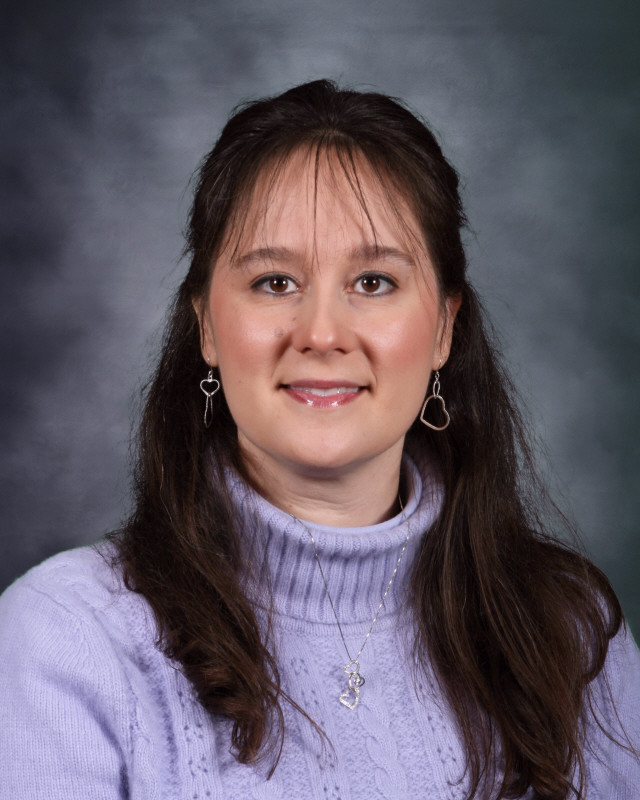
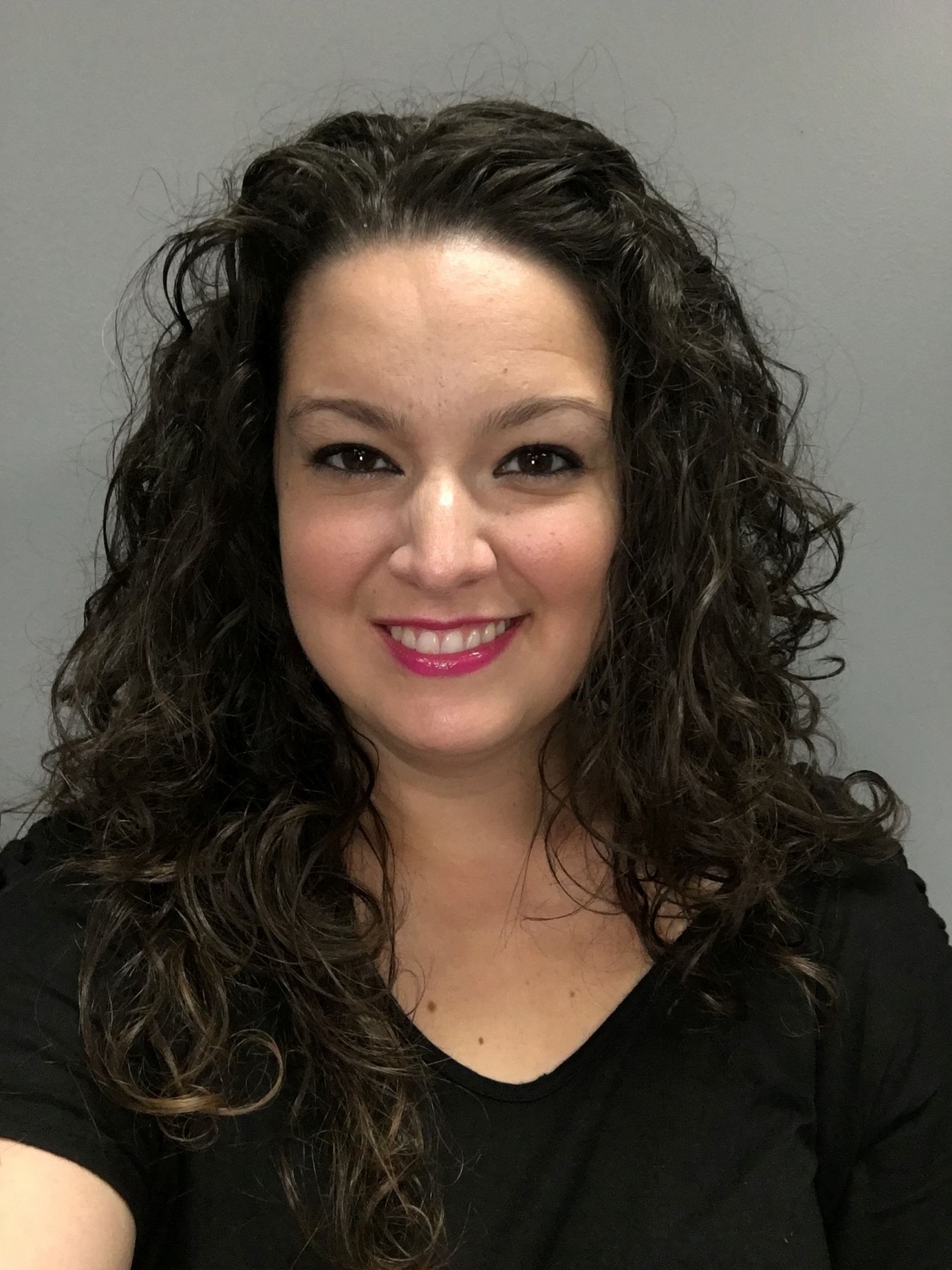






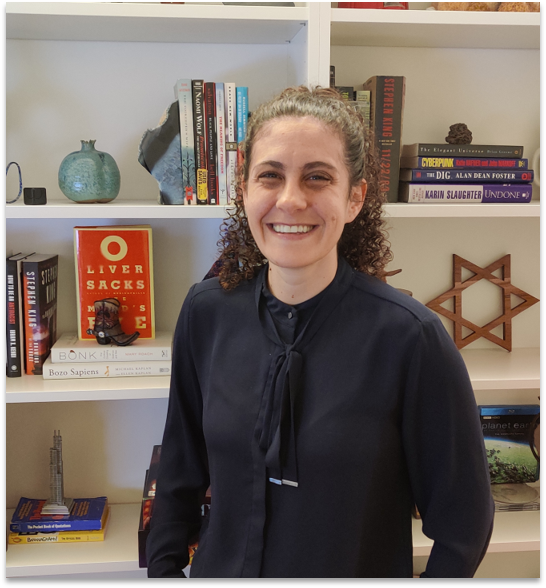


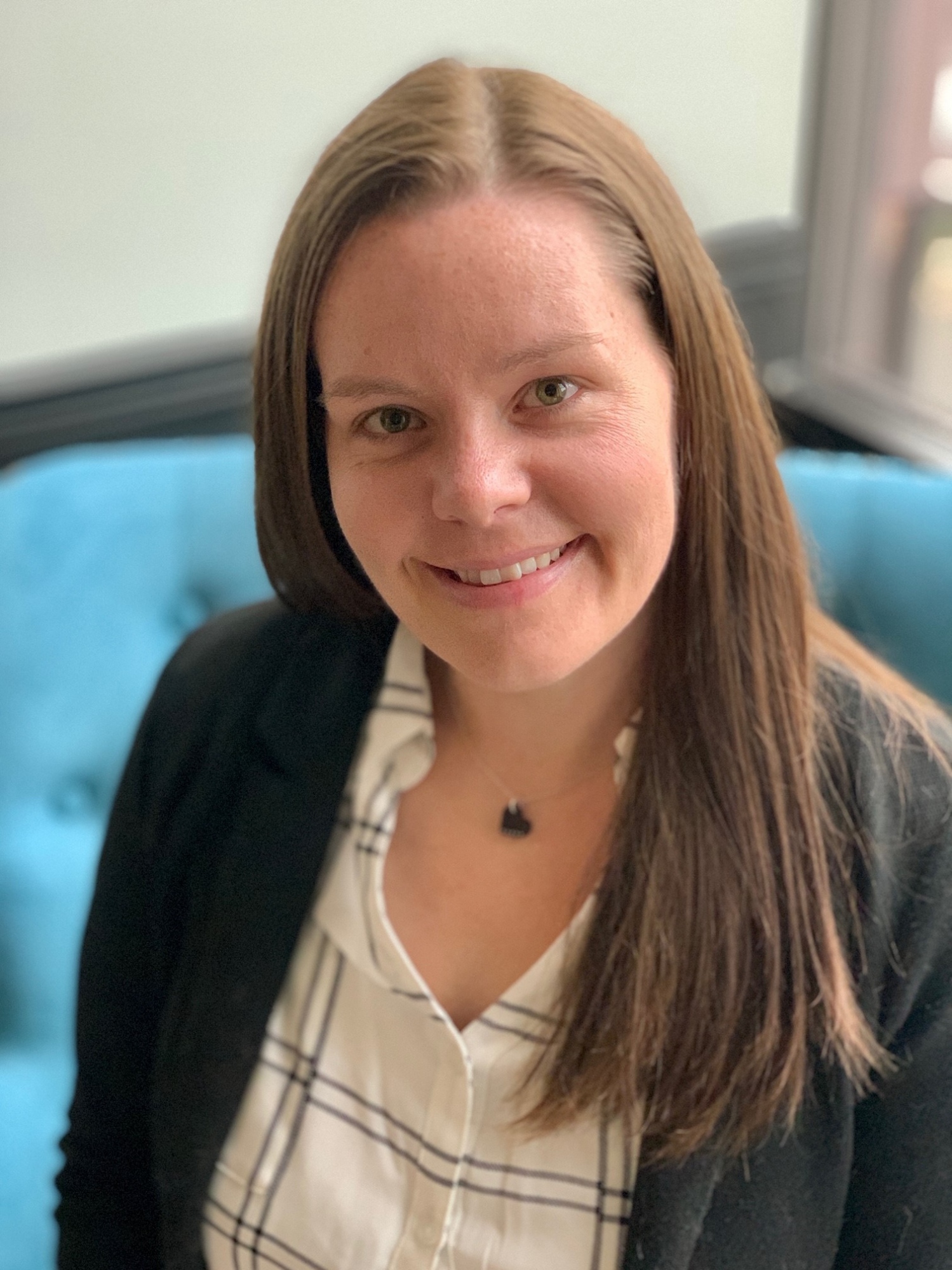





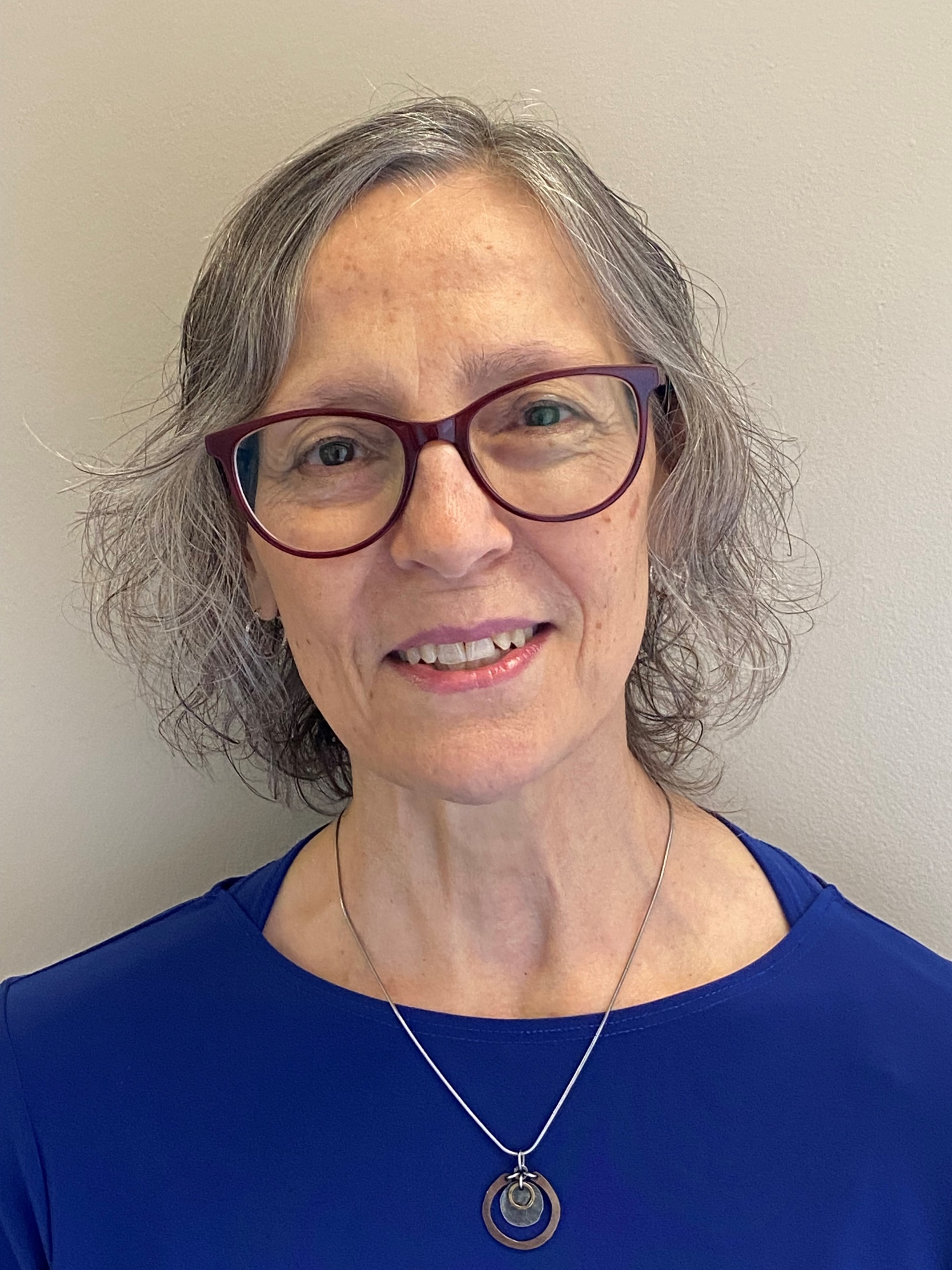
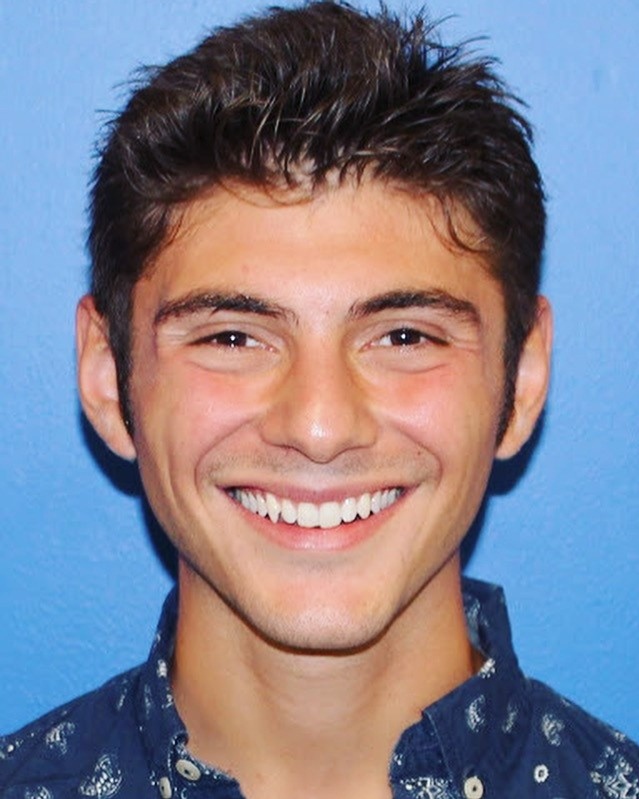





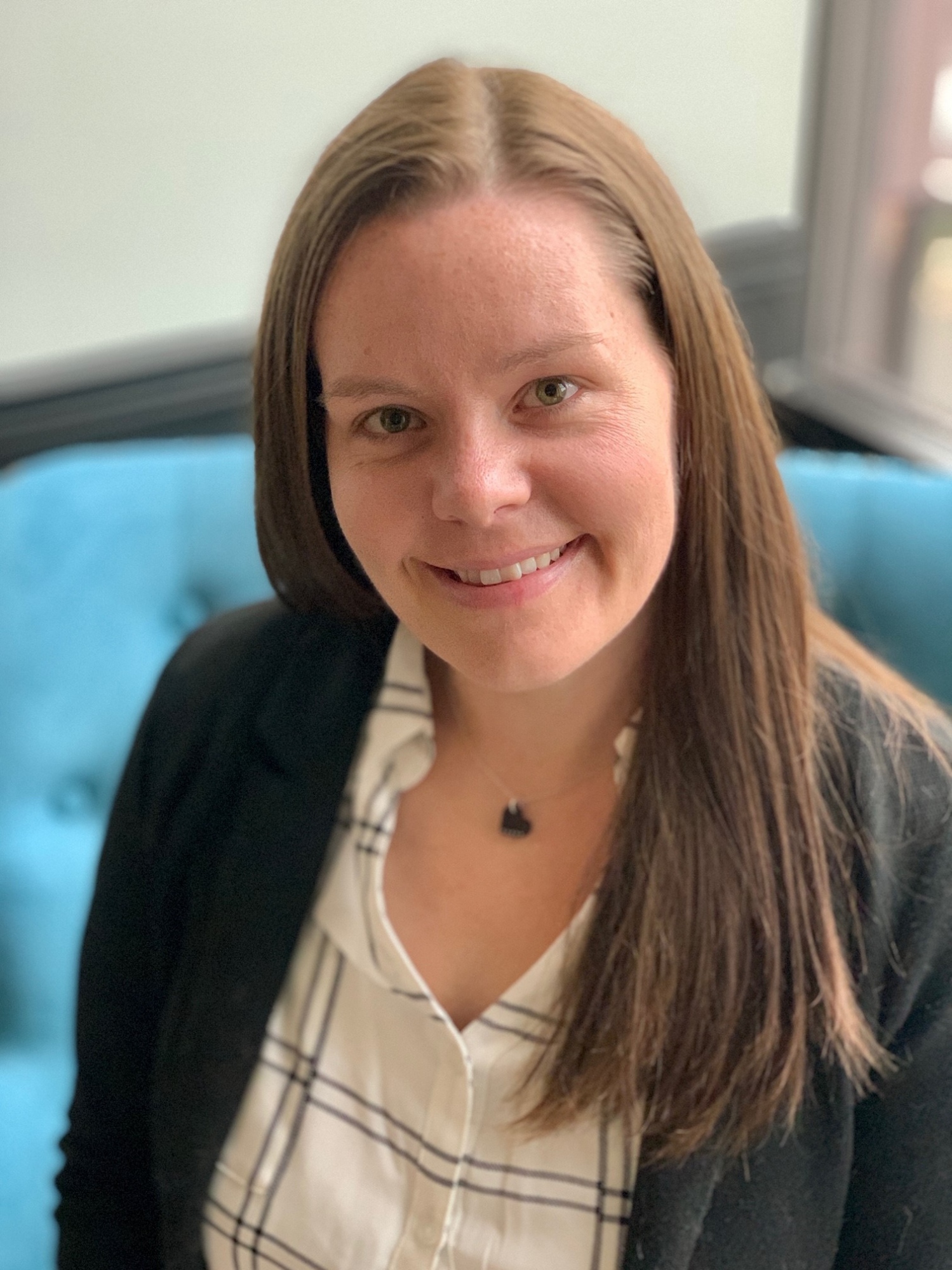

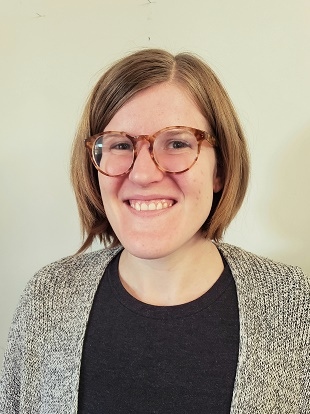



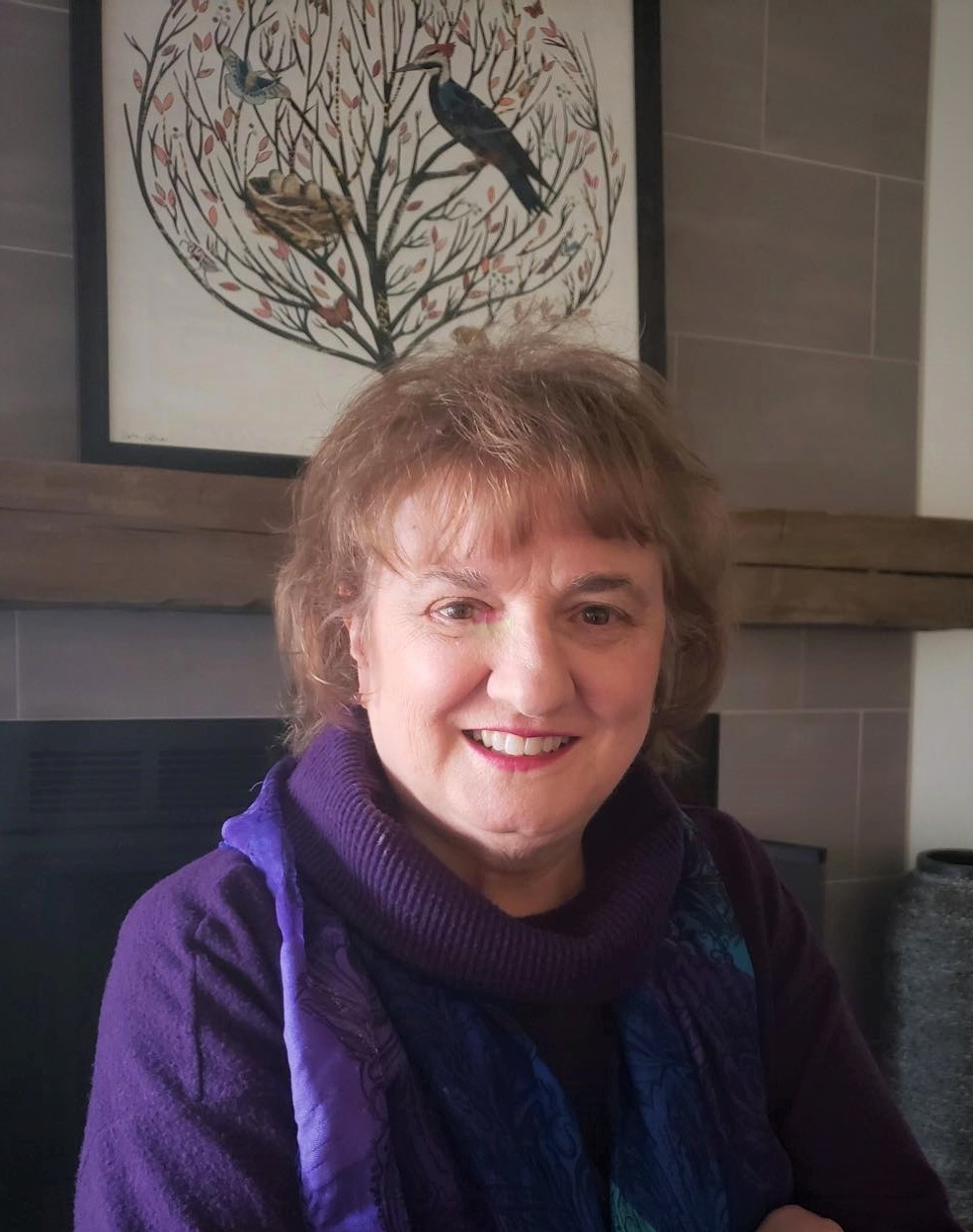












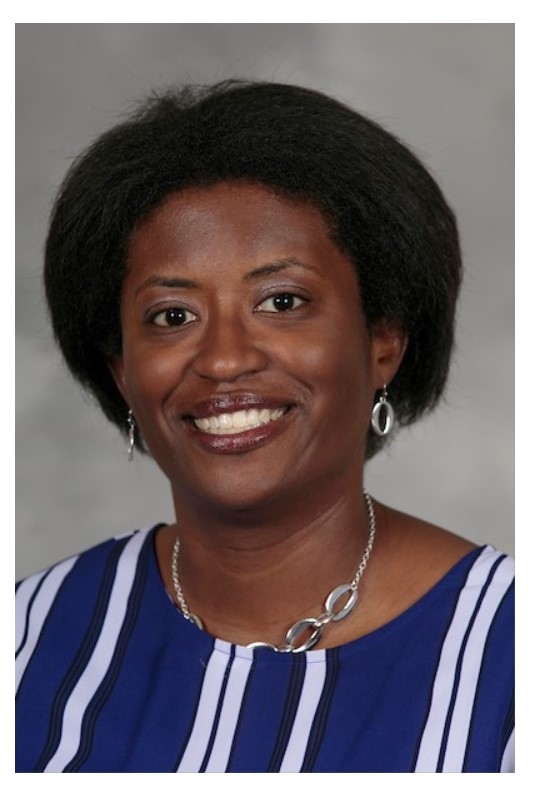



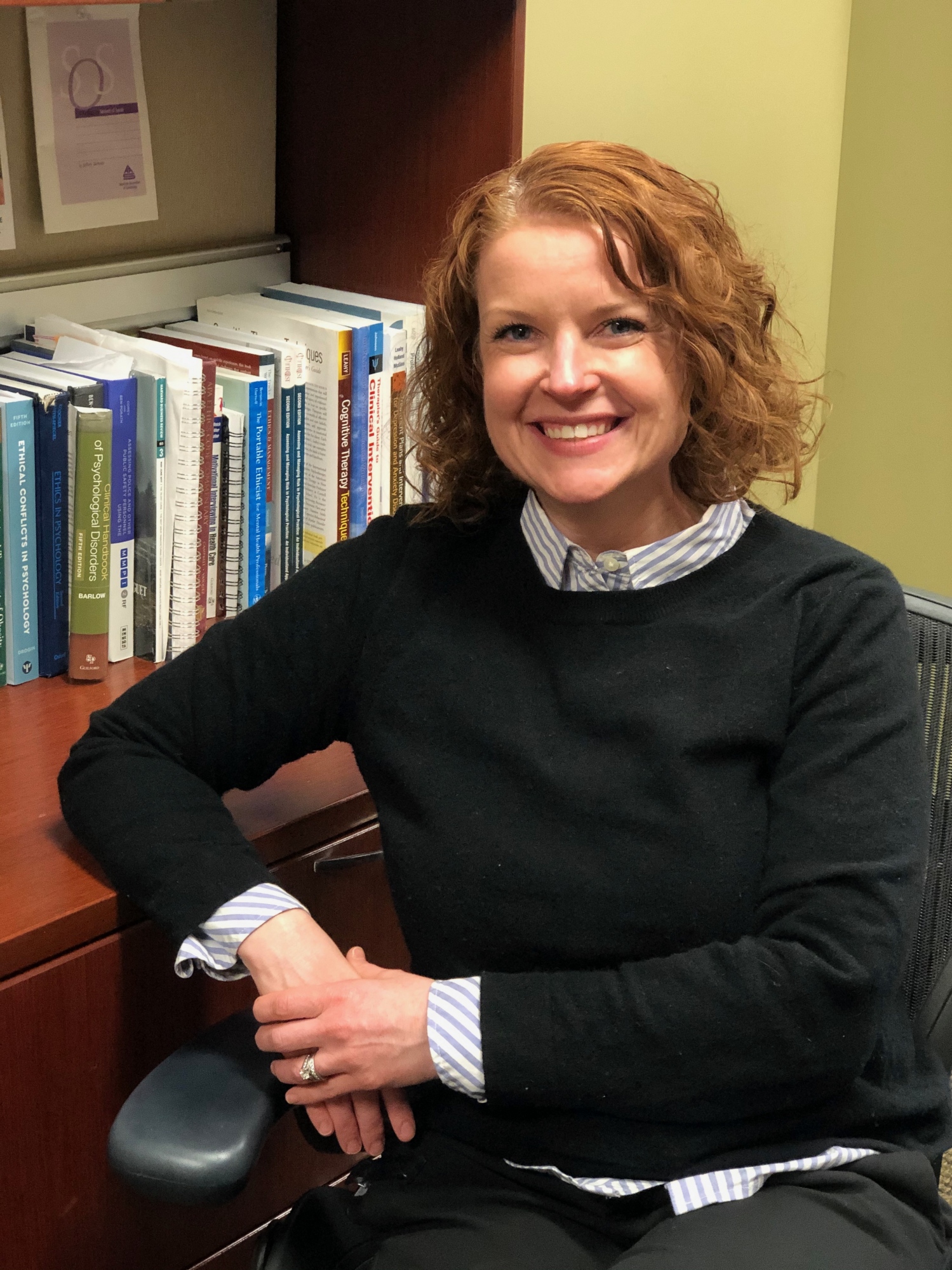

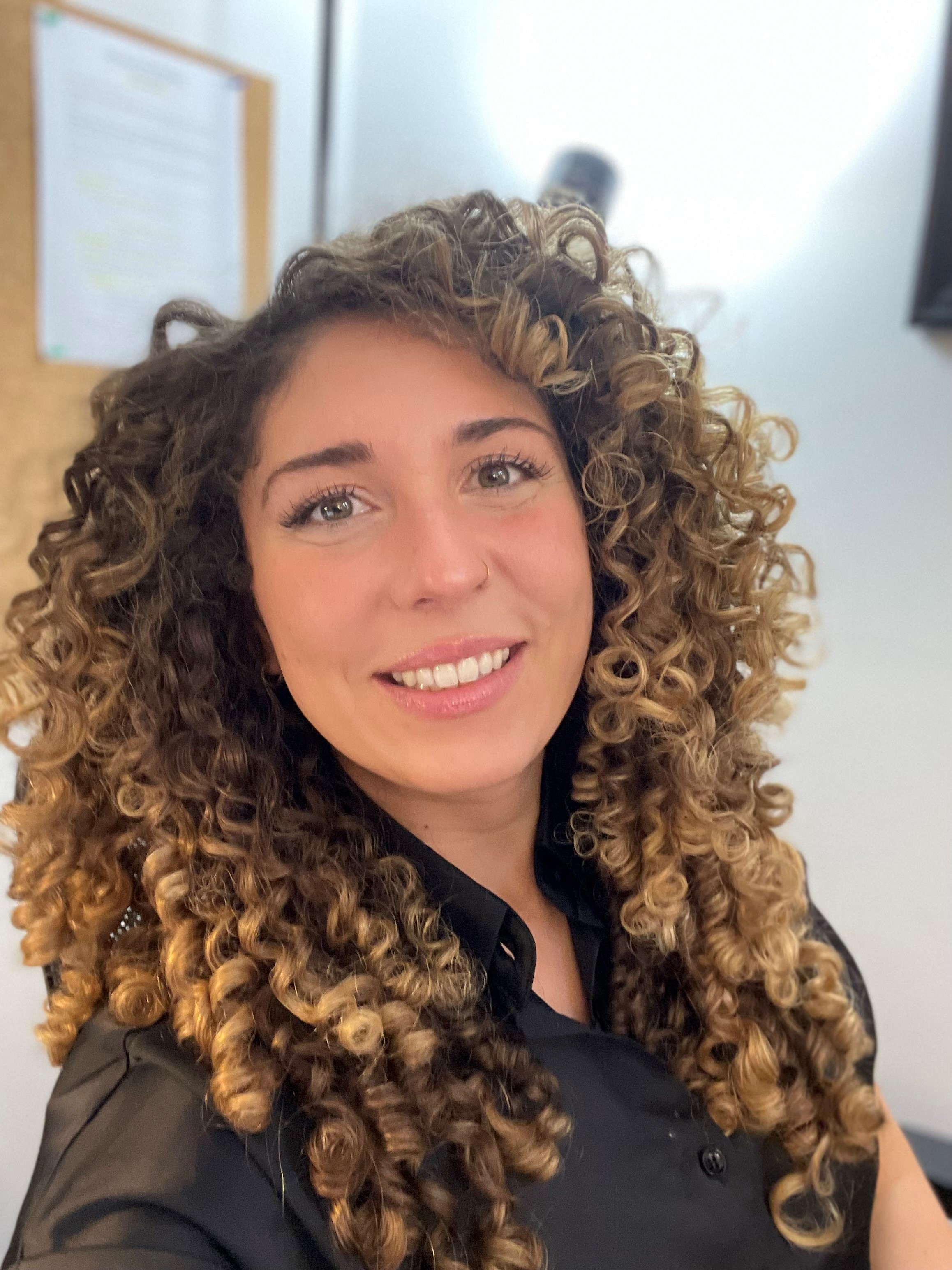

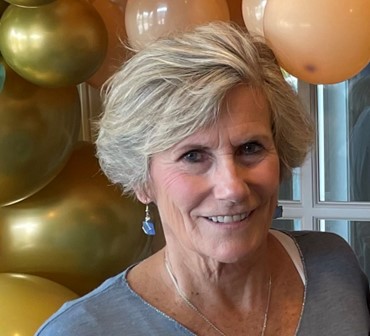
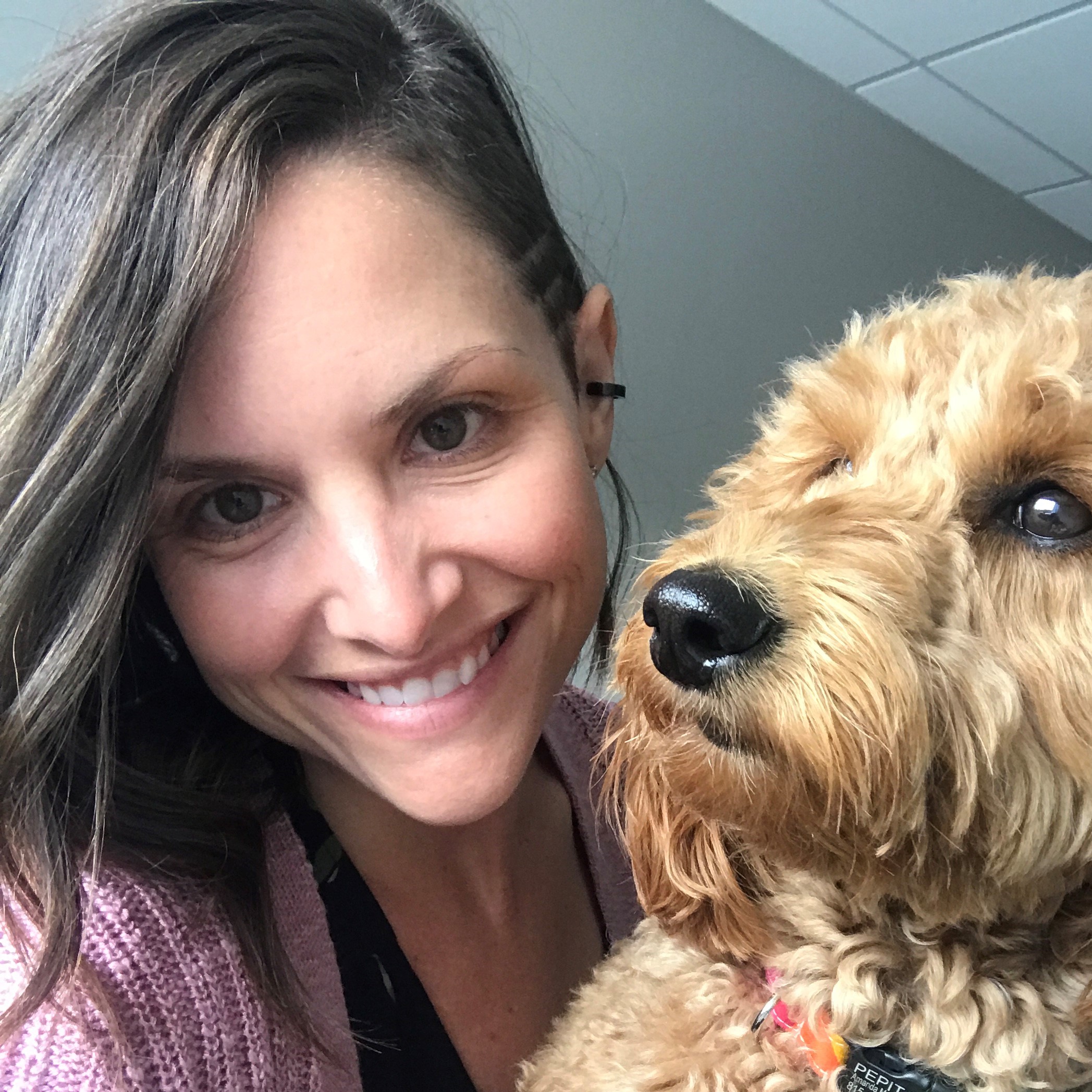

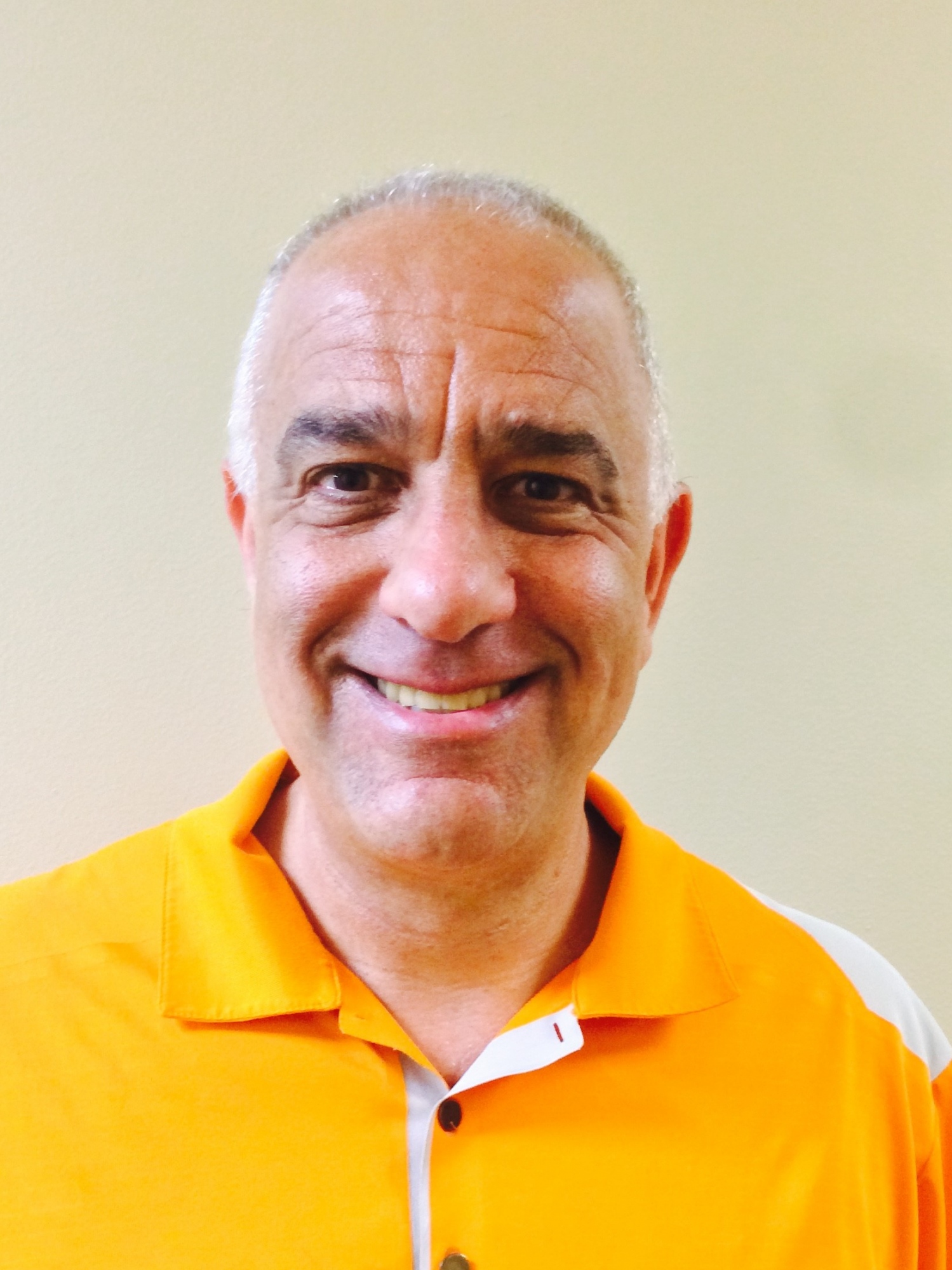

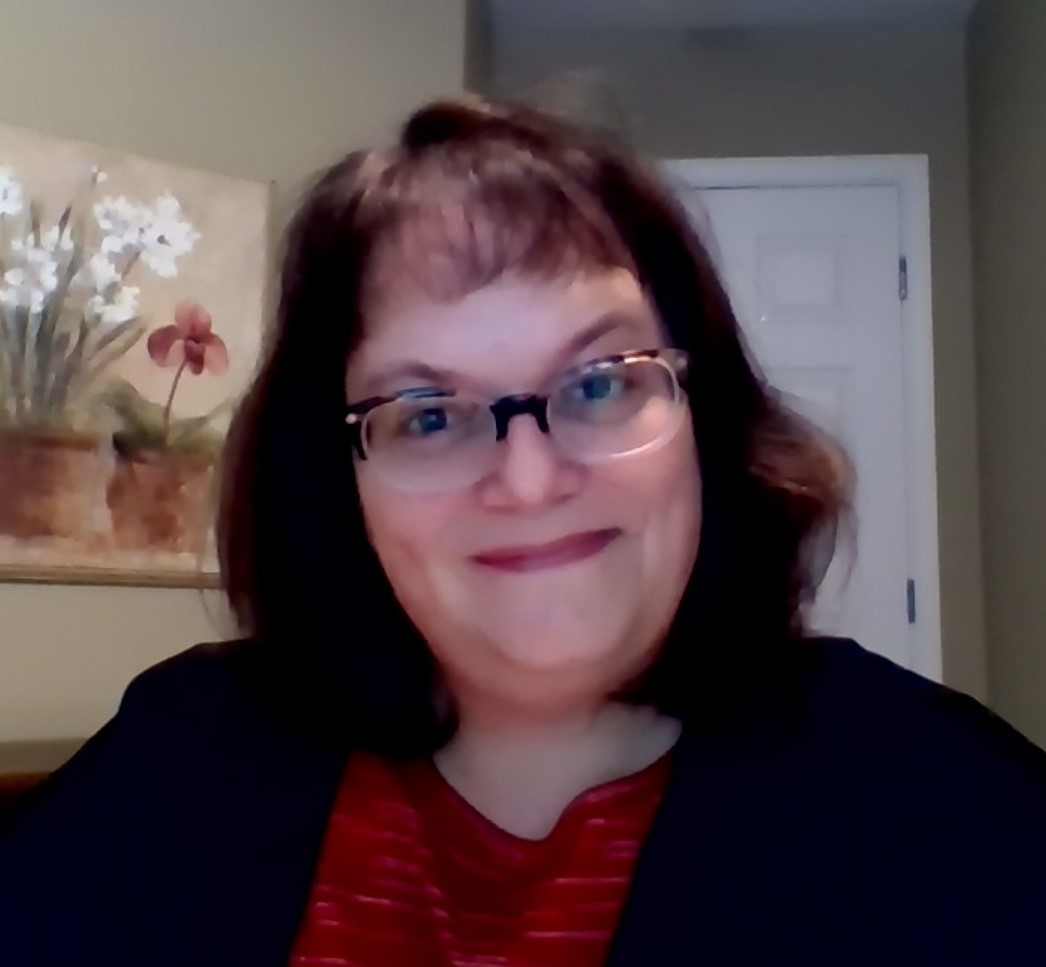







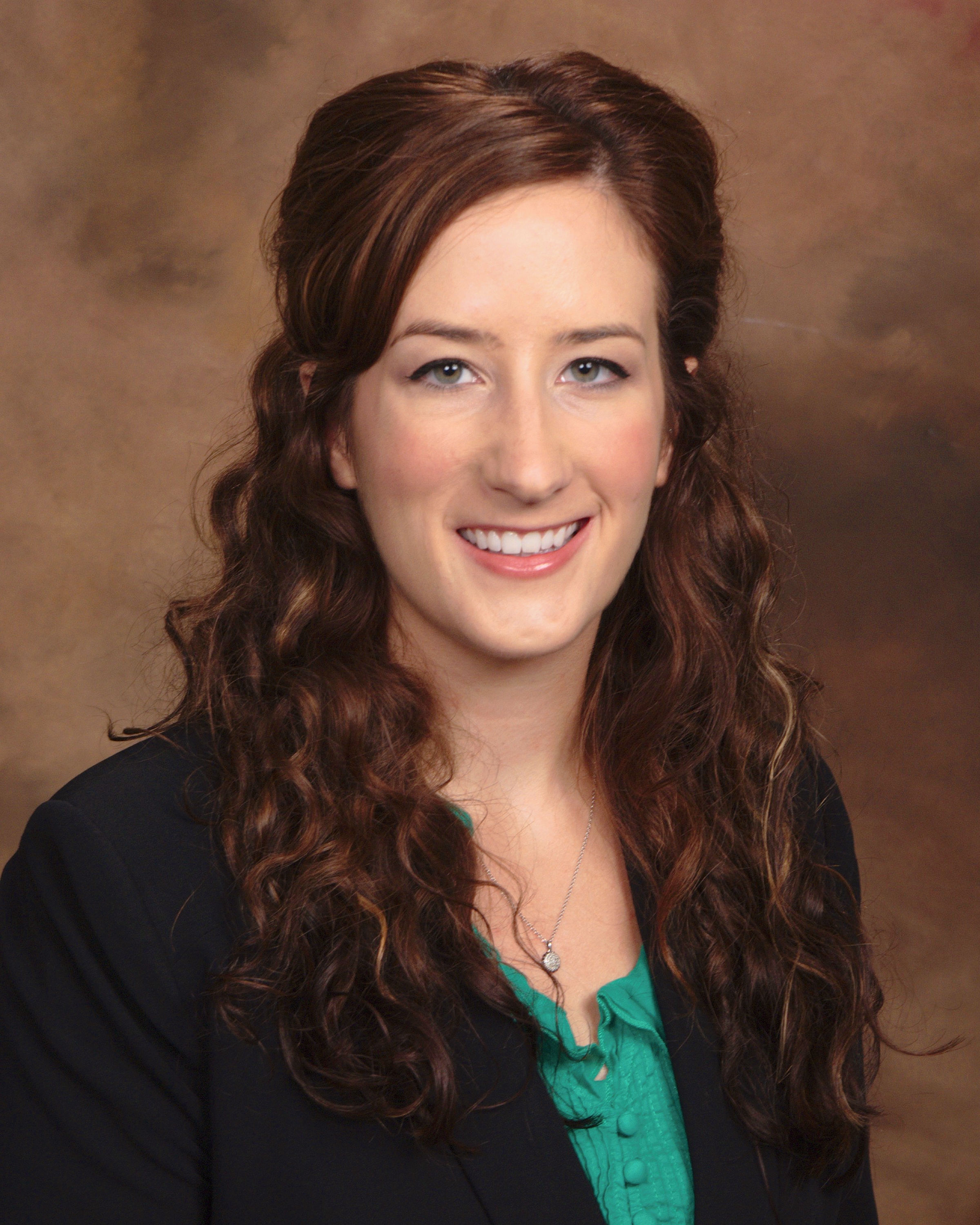
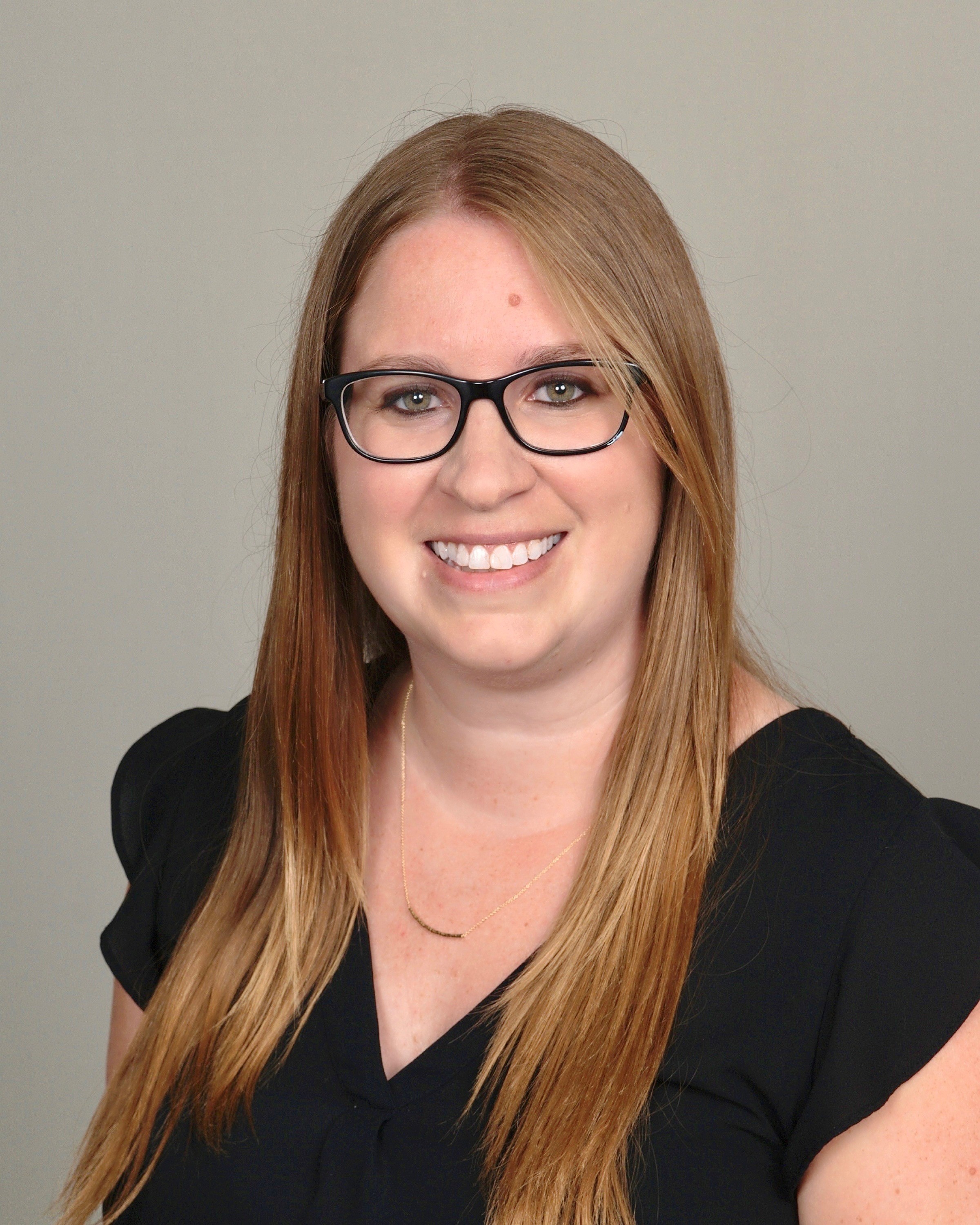








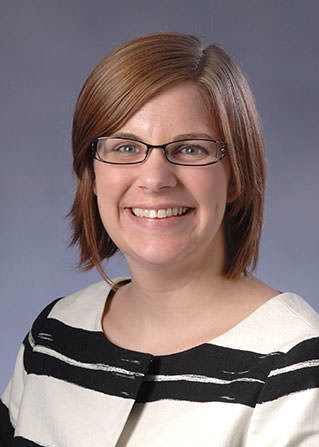








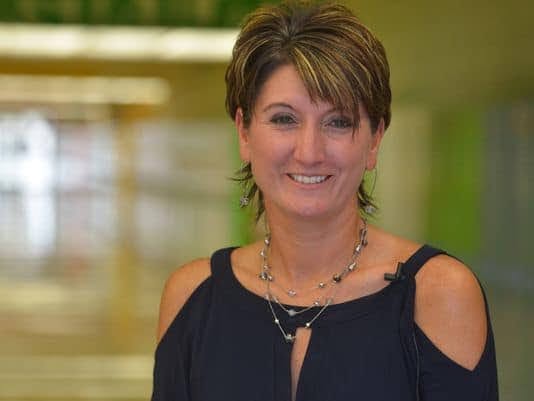
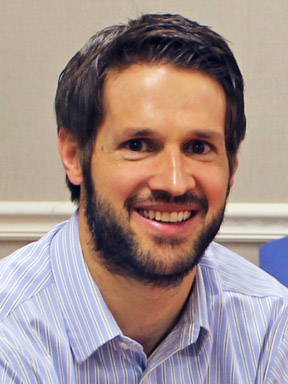








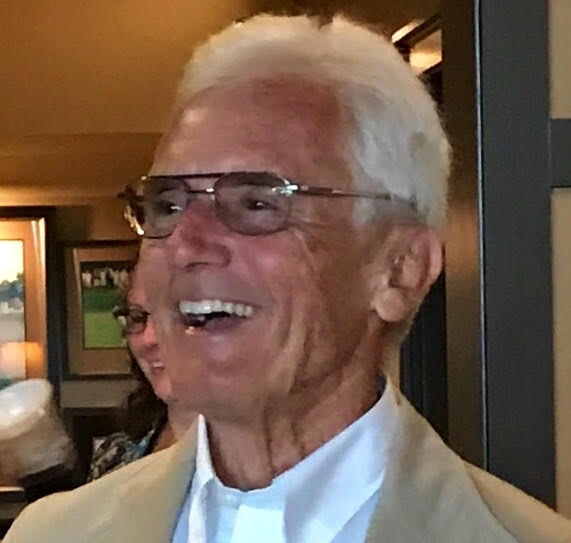

 Dr. Noelany Pelc is an Assistant Professor at Marian University, and is a licensed psychologist in the state of New York and in Indiana. She previously served as the Clinical Coordinator for MA/EdS students in Professional Counseling and School Counseling before serving as the Academic Director of the online School Counseling and Professional Counseling programs for two years at Seton Hall University in New Jersey. She is active in APA’s Division 35 (Society for the Psychology of Women), the Society for Teaching of Psychology (STP) and in the Advancement for Women in Psychology (AWP). During her training and post-graduation, she gained clinical experience working with women and children who were survivors of trauma and relational violence, particularly as those experiences intersected with marginalized and disenfranchised identities. She gathered experience working with college counseling students, dual-diagnosis mental health concerns and cross-addiction within a residential setting, and training in psychological assessment for impaired professionals. Her current areas of research center on experience of women in the Academy, the socialization of polarized national attitudes. and applications of cultural humility in research, teaching and mentorship. Her professional interests include relational-cultural theory, feminist theory, and pedagogy.
Dr. Noelany Pelc is an Assistant Professor at Marian University, and is a licensed psychologist in the state of New York and in Indiana. She previously served as the Clinical Coordinator for MA/EdS students in Professional Counseling and School Counseling before serving as the Academic Director of the online School Counseling and Professional Counseling programs for two years at Seton Hall University in New Jersey. She is active in APA’s Division 35 (Society for the Psychology of Women), the Society for Teaching of Psychology (STP) and in the Advancement for Women in Psychology (AWP). During her training and post-graduation, she gained clinical experience working with women and children who were survivors of trauma and relational violence, particularly as those experiences intersected with marginalized and disenfranchised identities. She gathered experience working with college counseling students, dual-diagnosis mental health concerns and cross-addiction within a residential setting, and training in psychological assessment for impaired professionals. Her current areas of research center on experience of women in the Academy, the socialization of polarized national attitudes. and applications of cultural humility in research, teaching and mentorship. Her professional interests include relational-cultural theory, feminist theory, and pedagogy.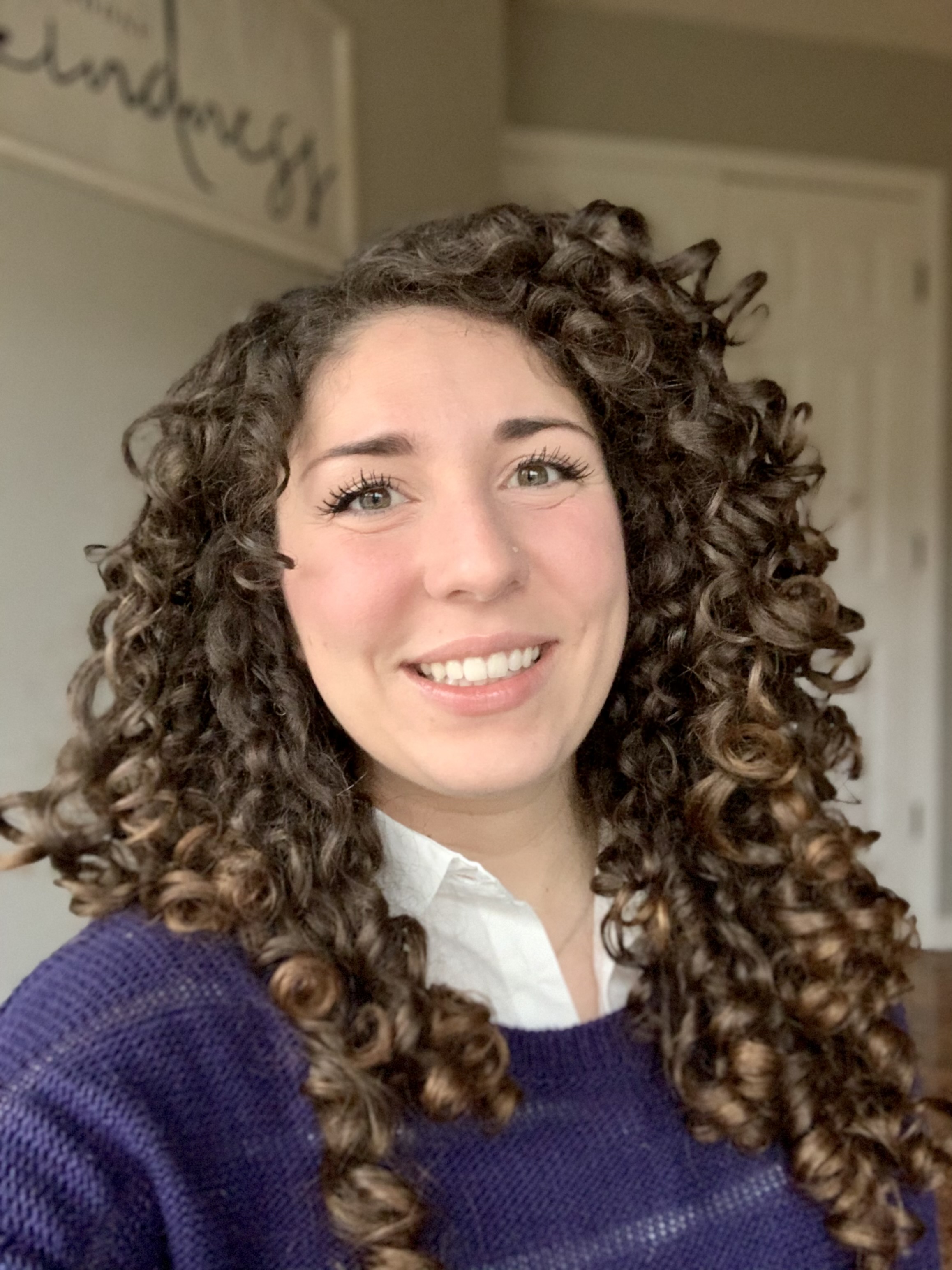






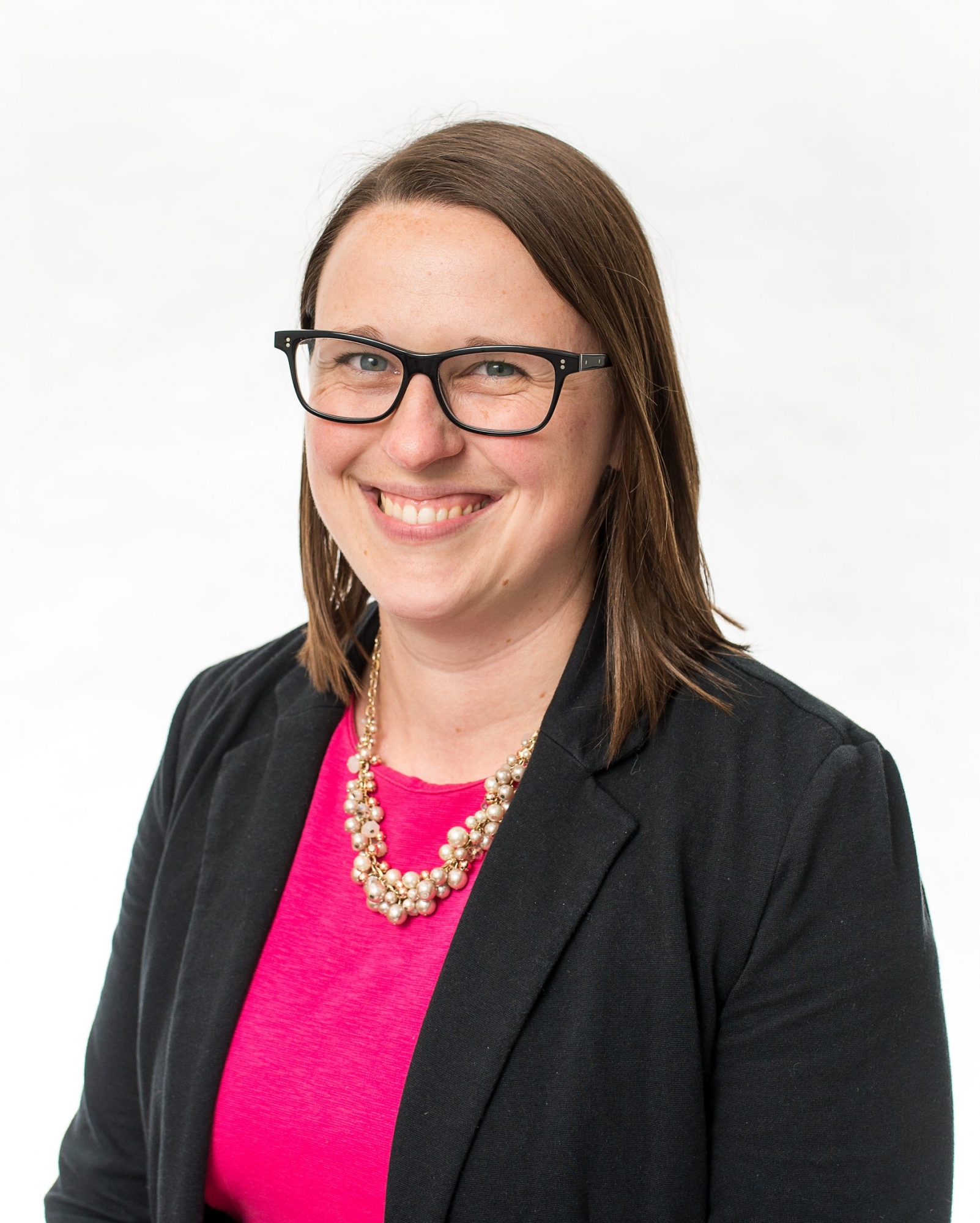

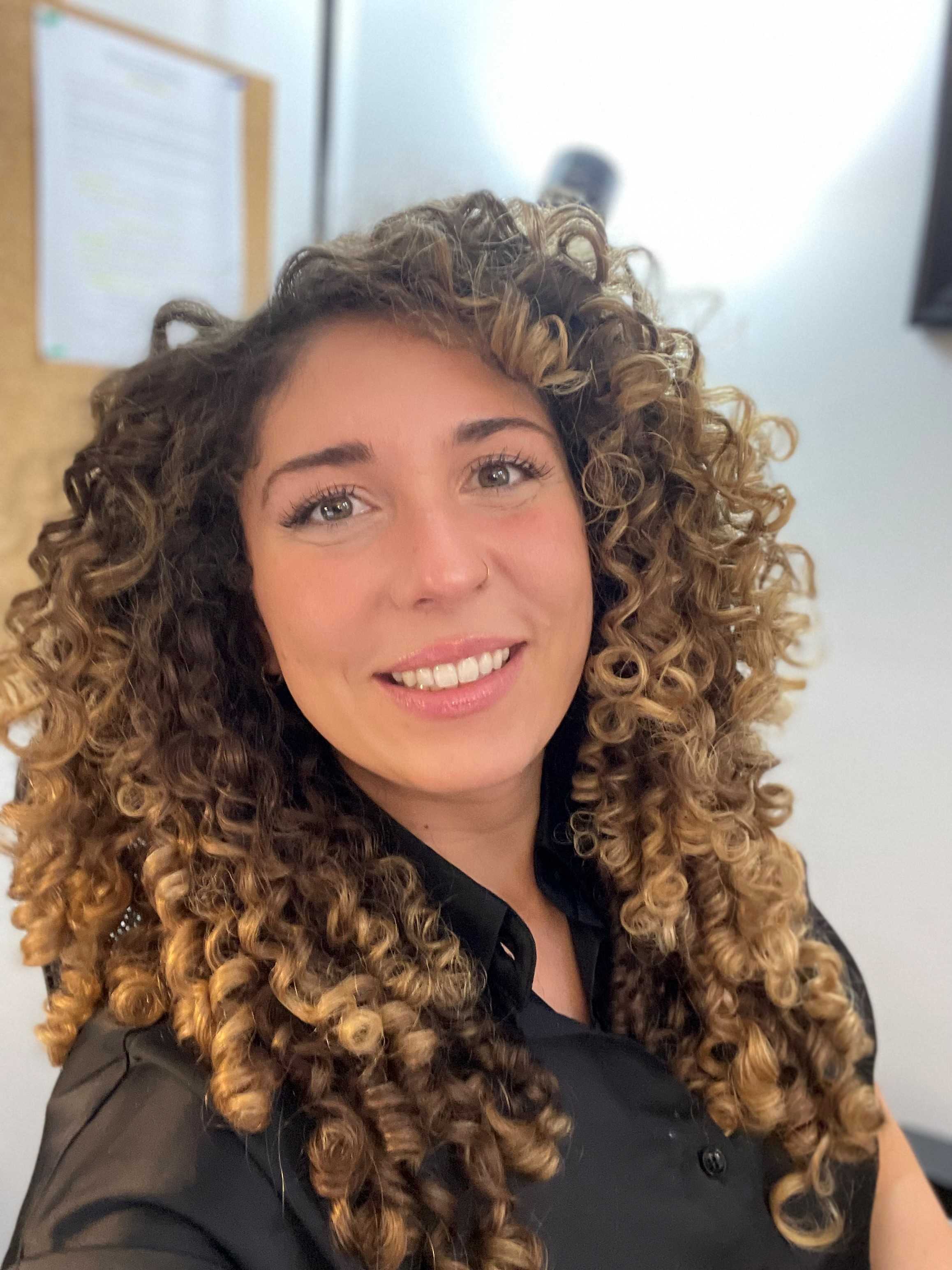

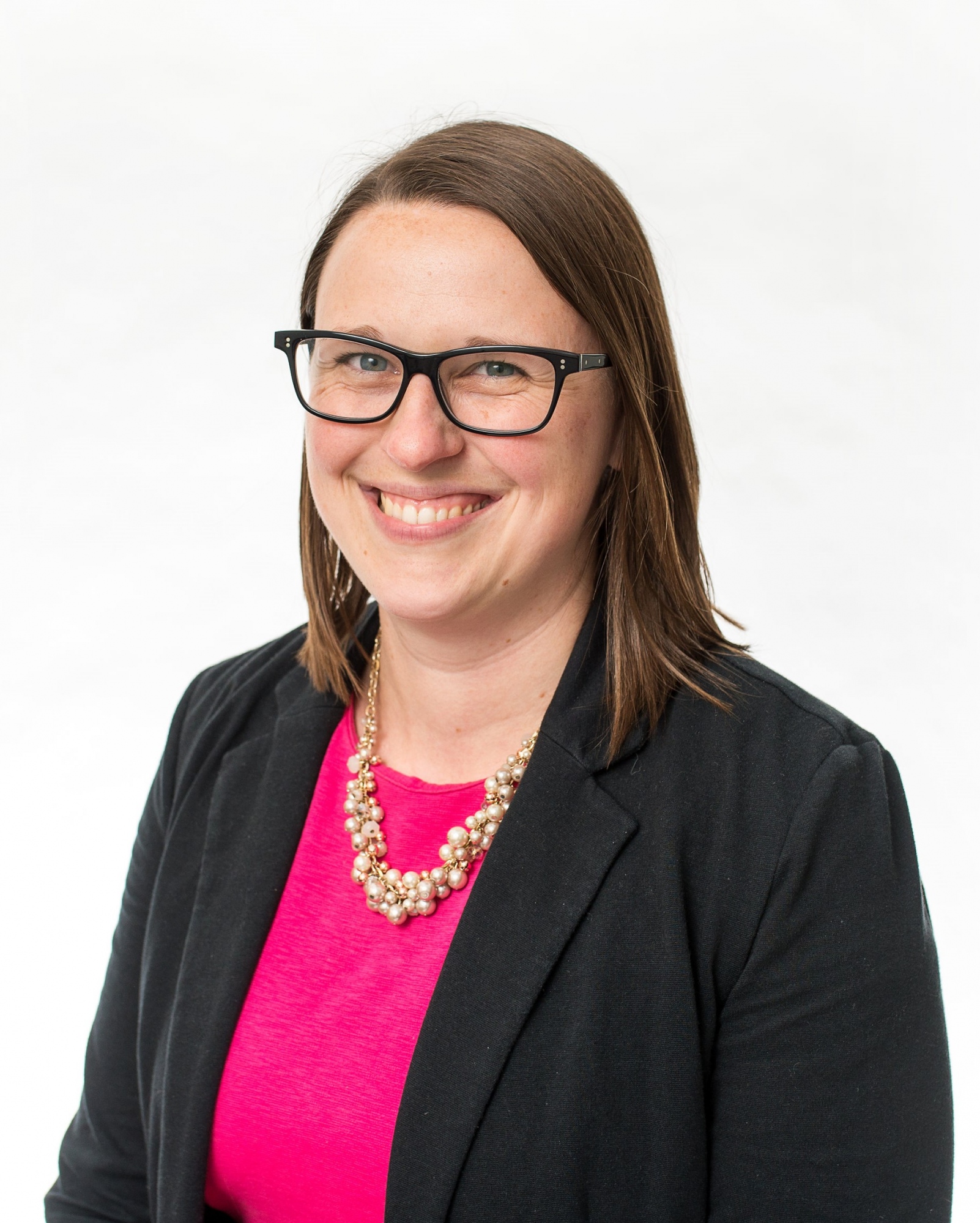




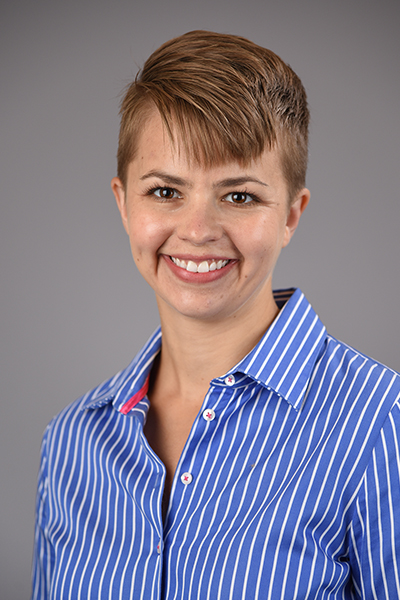





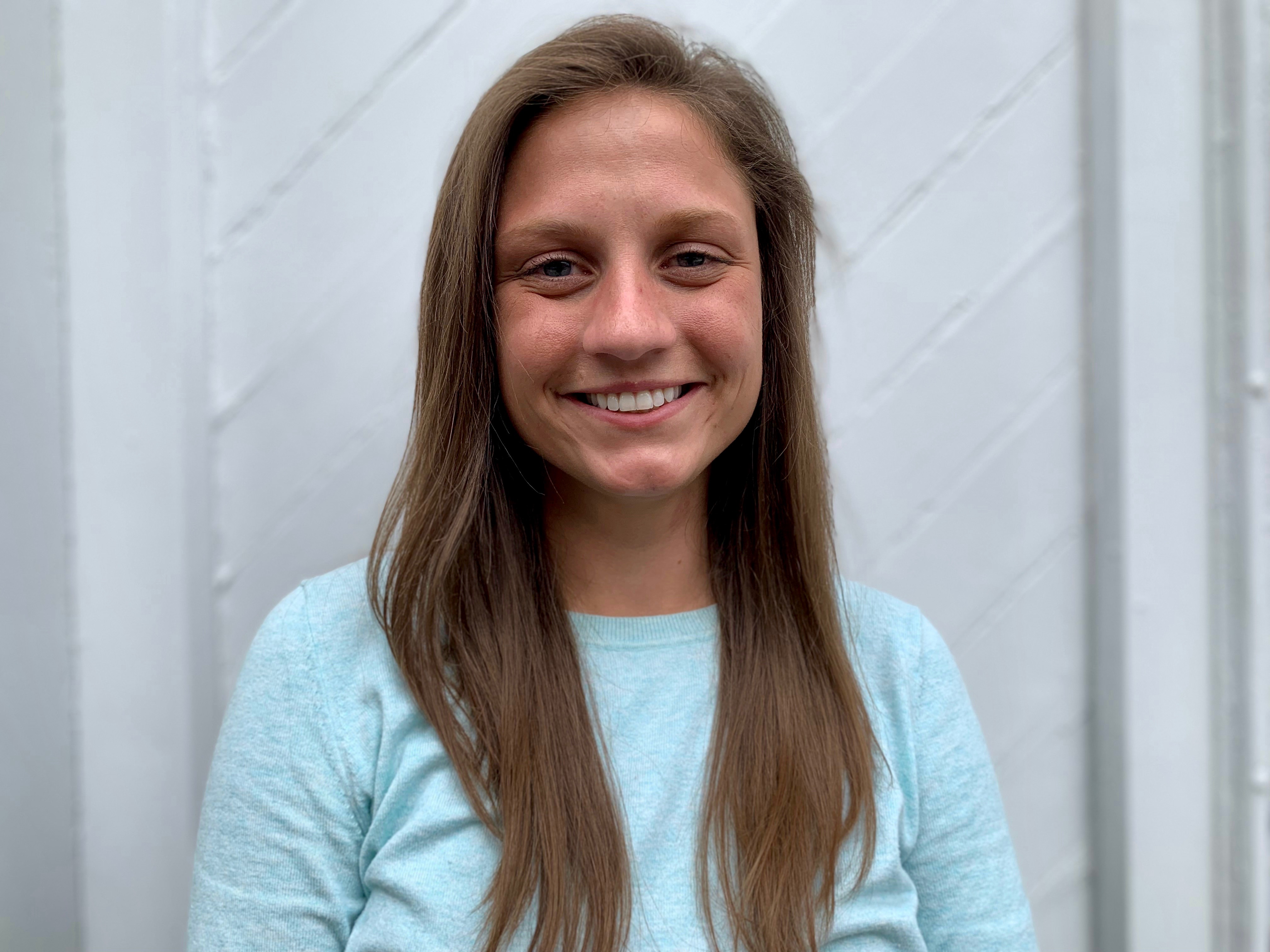

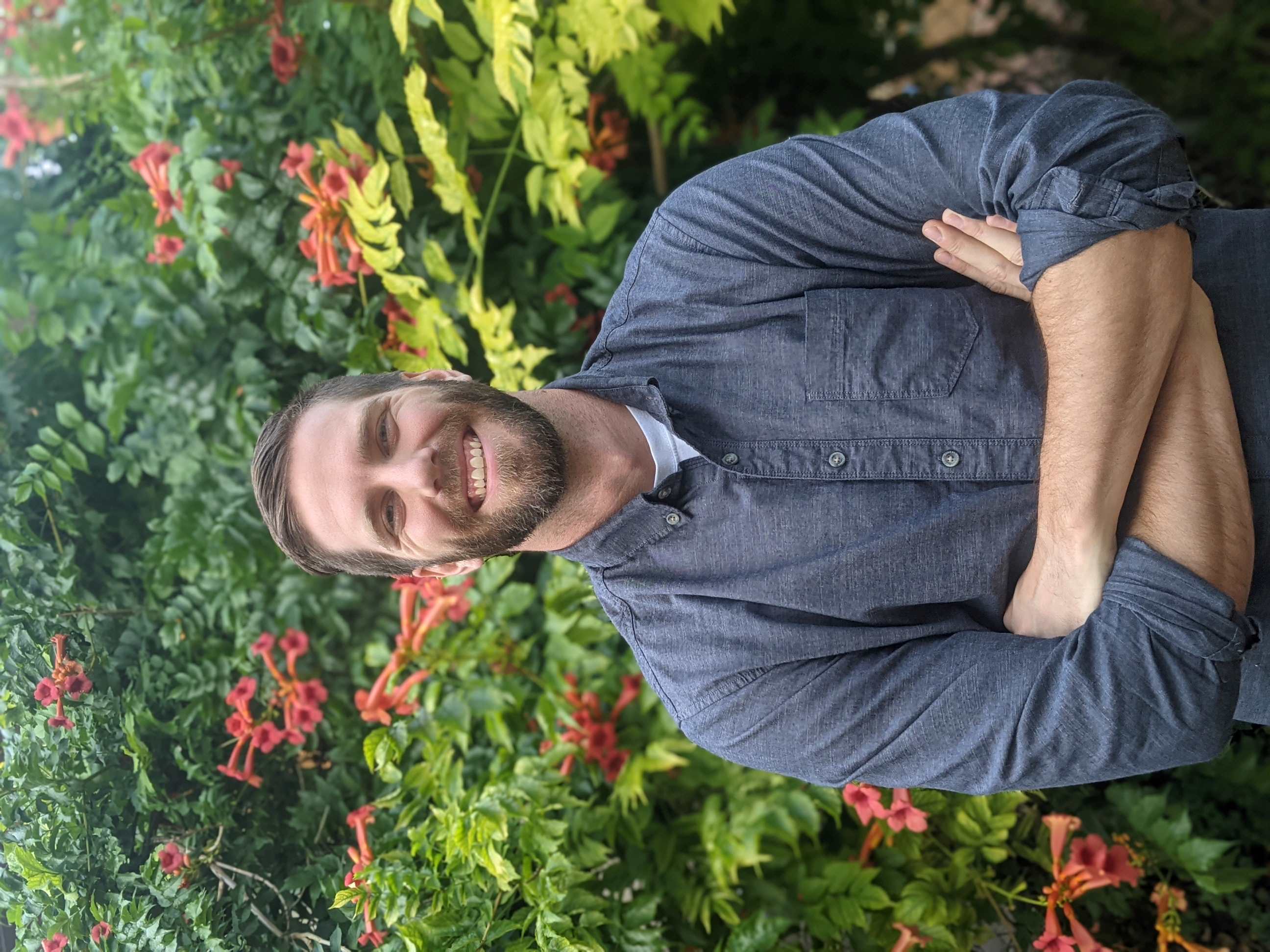

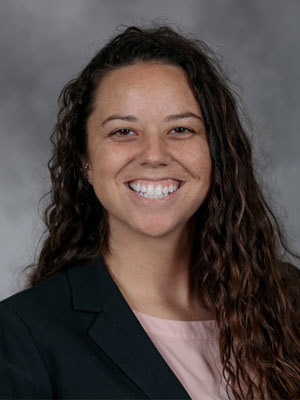






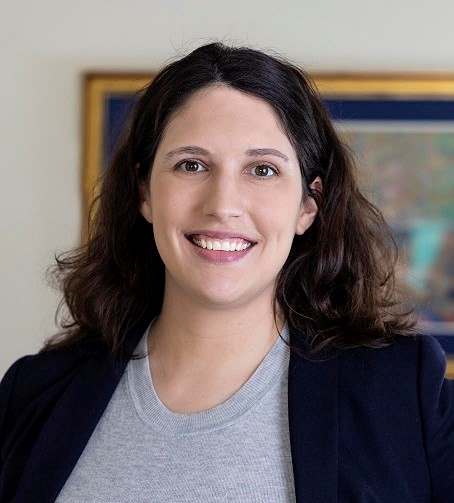





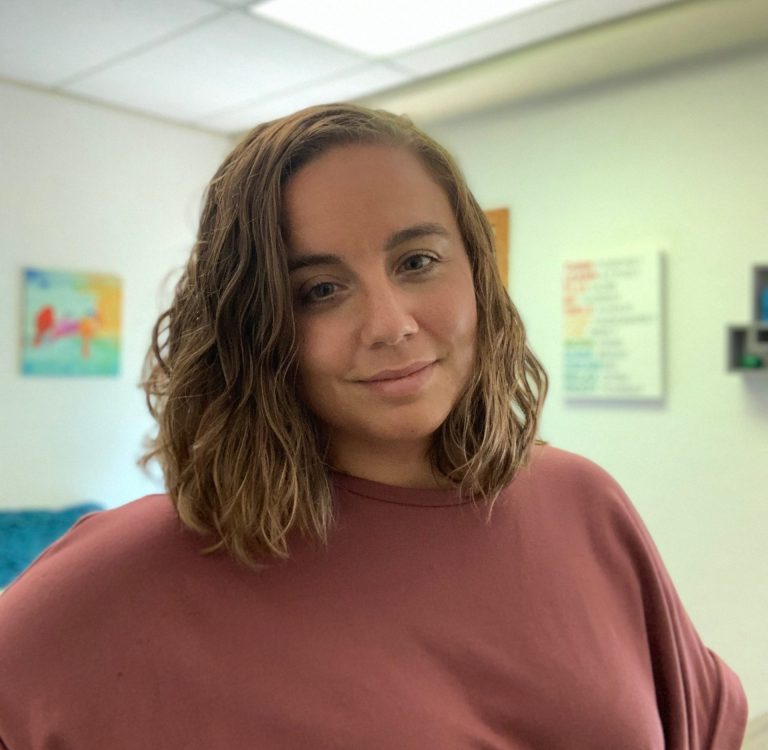


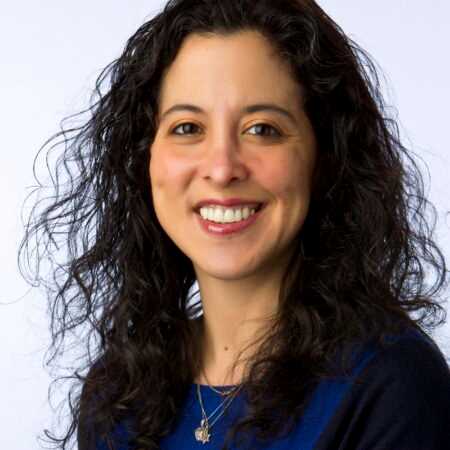



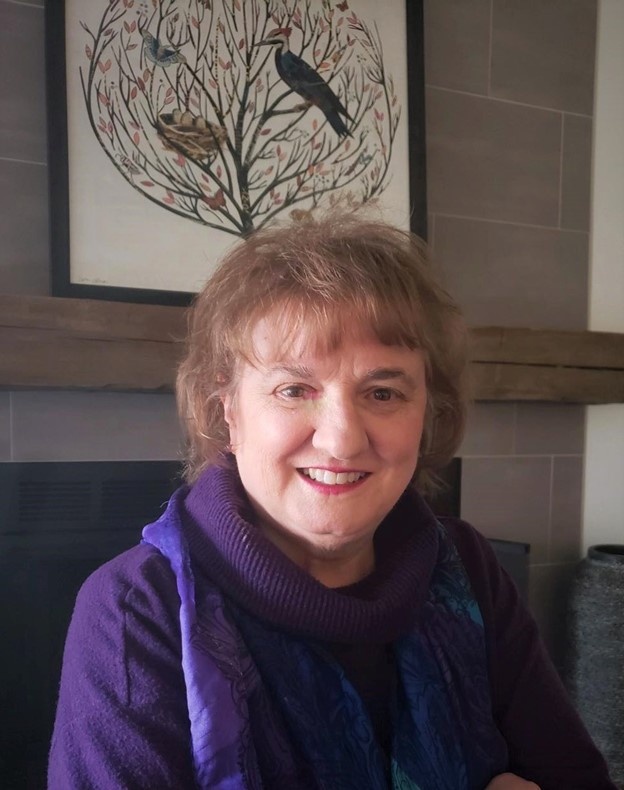
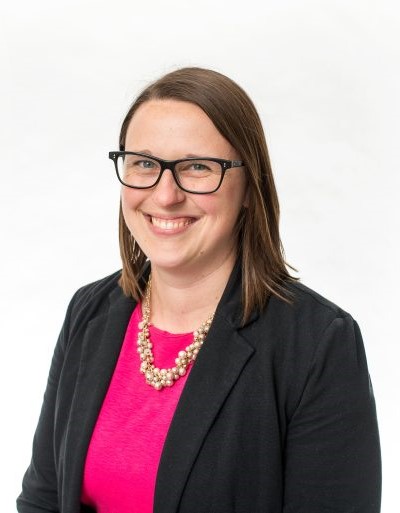
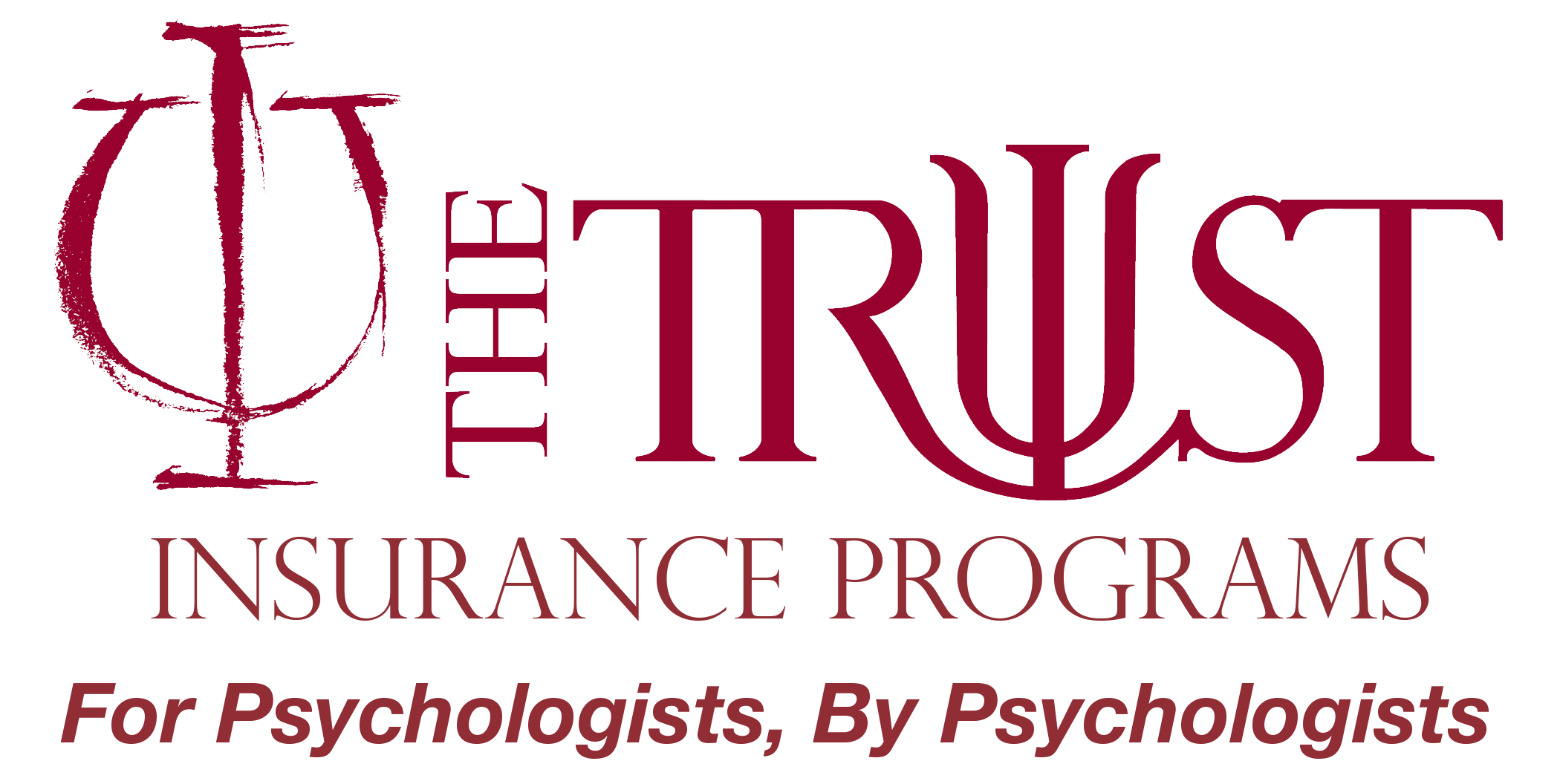
IPA Spring Ethics Event
The Trust Sequence XIV: Ethics and Risk Management of Navigating New Frontiers in Psychological Practice
Program Description:
For over two decades, The Trust has worked to educate and support psychologists in improving their ethics and risk management skills and strategies by providing live workshops, webinars, risk management consultations, and expanding resources. This 14th Workshop in our Sequence series continues to emphasize applied, integrated and strategic methods to help you stay grounded in ethical principles and practices, and to protect you from adverse disciplinary and legal actions.
In today's swiftly changing landscape, psychologists are witnessing a surge of fresh opportunities and possibilities. These emerging frontiers not only broaden the scope of professional activities for aiding clients and patients through innovative methods, but also offer avenues to enhance and support practice in ways that were once unimaginable. However, these new territories also come with their own set of unique challenges, unforeseen risks, and uncertainties.
Workshop XIV is dedicated to exploring the ethical considerations and risk management strategies essential for effectively maneuvering through these novel domains in psychological practice. Specific topics include: necessary considerations for expanding one’s practice into new areas, psychedelic assisted therapy (PAT), the use of artificial intelligence (AI) in psychological practice, issues related to digital security, new understandings of PSYPACT and interjurisdictional telepsychology (IJTP), and effectively managing transitions in one's practice (e.g., new employment, retirement, disability/illness, professional wills).
* This course will not fulfill requirements of all jurisdictions. It is important that potential participants review their respective state licensing board requirements prior to registering for this workshop.
Learning Objectives:
Describe basic principles of ethics and risk management, as applied to several specific clinical situations that arise in professional practice.
List at least three areas of the ethics code relevant to expanding one's psychological practice into new directions.
Describe potential risks psychologists face when growing their business in new areas.
Summarize at least three risk management strategies that can assist in mitigating risk.
Explain the current state of legality regarding this model of treatment; identify areas of unique risk when practicing PAT; and delineate at least five specific strategies for ethically managing those risks.
Define psychedelic assisted therapy (PAT).
Differentiate between legal and illegal interjurisdictional telepsychology (IJTP) practice and explain multiple avenues for legal practice.
Define three benefits and three risks of using artificial intelligence in psychological practice.
Identify three aspects of HIPAA that apply to privacy and security in emerging technology.
Summarize four steps in preparing for transitions in professional practice, and three action steps when these changes occur.
Delineate at least four risk management strategies for IJTP, both within and outside of PSYPACT, including the management of patients in crisis across jurisdictions.
Presenter: Leisl M. Bryant, Ph.D., ABPP
Dr. Bryant is a licensed New Hampshire and Massachusetts-based clinical and forensic psychologist, with board certification in Forensic Psychology by the American Board of Professional Psychology. She received her B.A. from the University of West Florida, her M.A. and Ph.D. in clinical psychology from Duquesne University, and completed a forensic postdoctoral fellowship at the University of Massachusetts Medical School Law and Psychiatry Program.
Working in both criminal and civil arenas, Dr. Bryant has maintained a private practice in clinical and forensic psychology for nearly two decades and has provided psychological services in a variety of forensic and therapeutic settings.
Dr. Bryant is a Fellow with the American Academy of Forensic Psychology, and formerly served as President and Executive Director of the New Hampshire Psychological Association (NHPA). She also served on the NHPA Ethics Committee for over ten years, received the Margaret M. Riggs Award for Distinguished Contribution to Psychology in the State of New Hampshire, and was awarded the Karl F. Heiser APA Presidential Award for Advocacy. Dr. Bryant brings extensive experience in forensic, clinical, and ethical consultation, academic instruction, and professional presentation to her role on the risk management team.
Dr. Leisl Bryant
Presenter: Marc A. Martinez, PhD, HSPP
Dr. Martinez has been an ethics and risk management consultant to mental health professionals for The Trust's professional liability insurance program since 2020. Dr. Martinez founded his private practice, Clinical and Forensic Psychology Services, in 2012 through which he provides a variety of forensic and clinical services, including evaluations and consultations related to competency to stand trial, criminal responsibility/insanity defense, sexual recidivism risk (including civil commitment of individuals who commit sexual offenses), violence recidivism risk, and disability determinations. Prior to establishing his private practice, Dr. Martinez worked as the lead forensic psychologist for a secured forensic unit at a state psychiatric hospital in Georgia and as an independent examiner for New York State’s Bureau of Sex Offender Evaluation and Treatment.
Dr. Marc A. Martinez received his B.A. from Cornell University and his M.S. and Ph.D. from the University of Georgia. He completed an APA-accredited predoctoral internship and a postdoctoral fellowship at Georgia Regional Hospital in Atlanta. In 2011, Dr. Martinez became board certified by the American Board of Professional Psychology in Forensic Psychology. Dr. Martinez is currently a licensed psychologist in Indiana as a Health Service Provider in Psychology, Ohio, and New York. He also has authority to Practice Interjurisdictional Telepsychology (APIT) and Temporary Authorization to Practice (TAP) under PSYPACT.

The Trust and the Indiana Psychological Association (IPA) are approved by the American Psychological Association to sponsor continuing education for psychologists. The Trust and the Indiana Psychological Association maintain co-responsibility for this program and its content.
Indiana State Psychology Board and Indiana Behavioral Health Board:
IPA is an approved provider of Category I continuing education for psychologists.
IPA is an approved provider of Category I continuing education for LSW, LCSW, LMFT, LMHC, LMFTA, LCAC and LAC.
Licensees must judge the program’s relevance to their professional practice.
Please note that APA rules require that credit be given only to those who attend the entire workshop. Those arriving more than 15 minutes after the scheduled start time or leaving early will not receive CE credits and will not be eligible for the 15% premium discount described below. Partial credit cannot be given. We ask that all participants return the post-program evaluation form at the conclusion of the program. Those who attend the workshop and complete the Trust evaluation form will receive six continuing education credits.
CE certificates will be distributed via email withing two weeks post-event.
Eligibility for The Trust Insurance Premium Discounts:
Workshop completion earns 6 CE credits and eligibility to receive a 15% premium discount on your Trust Sponsored Professional Liability Insurance for your next 2 consecutive policy periods. To obtain CE discounts, submit CE certification from an organization approved by APA to offer CE credit (must have been completed within the previous 15 months) with the insurance application. Discounts cannot be combined and are not applicable to Researcher/Academician or Student policies. Group policies become eligible for the CE discount when at least 50% of those insured under the group policy submit CE certification. All applications are individually underwritten and submission of CE certification will not guarantee insurance policy issuance or renewal.
Registration Fees:
Non-Members - Psychologists and Other Professionals $275
IPA Basic, Emeritus-Retired Members, Academic, Post-doc, and Affiliate Members - $225
IPA New, Premier, Emeritus-Practicing - $200
IPA Platinum Members - $100
Registration will close on Thursday, May 9th at 11:59 p.m.
Registrants will receive further information for participating via Zoom Webinar for the presentation.
Psychological Treatment Consideration in Parkinson's Disease
The overall aim of this presentation is to educate psychologists on the disease process and mental health considerations in Parkinson's disease. We will provide recommendations for specific therapeutic approaches/considerations when working with this population, taking into consideration the specific cognitive, physical, and psychiatric symptoms these individuals experience. We will also provide attendees with resources which may benefit these specific
patients.
Learning Objectives
By completing this program, participants will able to:
1. Describe the cardinal symptoms of Parkinson's disease.
2. Define the common psychological and neuropsychiatric symptoms of Parkinson's disease.
3. Assess treatment needs of people living with Parkinson's disease and their families and select evidence-based therapeutic treatment approaches to address these needs.
4. Identify local resources for individuals with Parkinson's disease.
Presenter Bio: Angelina Polsinelli, PhD, ABPP-CN
Dr. Angelina Polsinelli is a board-certified clinical neuropsychologist and Assistant Professor of Clinical Neurology at the Indiana University School of Medicine. She sees patient for a variety of medical and neurological concerns, including individuals with Parkinson's disease. She is the neuropsychology lead for the Parkinson's Center of Excellence at IUSM and for the deep brain stimulation team and has given several talks on managing apathy, impulsivity, and speech and language challenges for the Parkinson's Foundation. She is also an investigator with the Longitudinal Early-onset Alzheimer’s Disease Study (LEADS) led by Dr. Liana Apostolova and faculty with the Outreach Recruitment and Engagement (OREC) core of the Indiana Alzheimer's Disease Research Center (IADRC). She leads community outreach and education about brain health and the importance of early dementia detection through local churches, neighborhood centers, and senior living centers.
Dr. Angelina Polsinelli
Presenter Bio: Shannon Harris, PsyD
Dr. Shannon Harris graduated with her doctorate in clinical psychology from the University of Indianapolis in 2022. She completed her pre-doctoral internship with a neuropsychology emphasis at the North Texas VA Healthcare System. She is currently a second-year post doctoral fellow in clinical neuropsychology at the Indiana University School of Medicine in the Department of Neurology. She is an active participant on the multidisciplinary pre-surgical deep brain stimulation team at IU, which helps to evaluate patient candidacy for surgical interventions for Parkinson's disease and other movement disorders. She has experience conducting neuropsychological evaluations with individuals diagnosed with Parkinson’s disease to assess
surgical candidacy and to characterize their current cognitive functioning. Dr. Harris is expected to graduate from her post-doctoral fellowship in August 2024, and she will continue to reside in Indianapolis where she plans to pursue a career in geriatric neuropsychology in a hospital-based
setting.
Dr. Shannon Harris
Special Note to Conference Attendees
The Indiana Psychological Association (IPA) is approved by the American Psychological Association to sponsor continuing education for psychologists. The Indiana Psychological Association maintains responsibility for this program and its content.
Indiana State Psychology Board and Indiana Behavioral Health Board:
IPA is an approved provider of Category I continuing education for psychologists.
IPA is an approved provider of Category I continuing education for LSW, LCSW, LMFT, LMHC, LMFTA, LCAC and LAC.
Licensees must judge the program’s relevance to their professional practice.
Please note that APA rules require that credit be given only to those who attend the entire workshop. Those arriving more than 15 minutes after the scheduled start time or leaving early will not receive CE credits. Partial credit cannot be given. We ask that all participants return the post-program evaluation form at the conclusion of the program. Drs. Polsinelli & Harris and IPA have not received any commercial support for this program or its contents and will not receive any commercial support prior to or during this program.
CE certificates will be distributed via email withing two weeks post-event.
Registration Fees
IPA New, Premier, Platinum, Emeritus-Practicing, and Student Members - $0
IPA Basic, Emeritus-Retired Members, and Affiliate Members - $15
Non-Members - Psychologists and Other Professionals $30
*If a non-member Student seeking to attend, please either join IPA (free membership with "sponsorship" by an IPA Academic Member or, if outside the state of Indiana, please contact info@indianapsychology.org.
Registration will close on Thursday, May 16th, 2024.

Registrants will receive further information for participating via Zoom Webinar for the presentation.
Challenges to Assessing and Treating Racial Trauma and How to Overcome Them Ethically, Practically, and Bravely
In this engaging webinar, the presenters offer an overview on how to assess and treat racial trauma in people of color. We focus on (1) recognizing complexities in the social environment that make this work challenging (for example, practitioners naming or talking about "racial issues" may appear to them as though they are entering into more political than therapeutic arenas) and (2) theory-informed guidelines for navigating therapeutic/consultation interactions. We highlight the research that identifies the multiple influences of individual trauma --- developmental, physiological, and societal, and offer strategies for ethically overcoming the challenges that tend to diminish practitioners' ability to help their clients' healing processes. Case studies will be presented to illustrate successful measures to facilitate client healing. This presentation is an introduction to an extended workshop we plan to offer in the fall which will provide attendees with opportunities to engage in role-plays and receive nuanced guidance in the promotion of successful processes and outcomes in therapy and consultation.
Learning Objectives
By completing this program, participants will able to:
1. Describe what racial trauma is, its symptomatology, and recent research about its manifestations in people of color.
2. Summarize how racialized environments influence and can exacerbate racial trauma, thus an understanding of these environments is relevant to an understanding of this form of trauma and to ethical psychological practice.
3. Apply theory and other guidelines to the ethical treatment of people of color affected by racial trauma .
4. Describe how racial trauma can be integrated into a practice setting based on qualities about the client and the practitioner.
Presenter Bio: Chalmer Thompson, PhD
Chalmer E. Thompson, Ph.D. is Professor Emerita of IUPUI and a psychology legal consultant in Indiana. For 30 years, Dr. Thompson has built her scholarship, teaching, and practice around theory development on racialized violence and its application to individual, group, and community-level practices. She also has studied how therapists' "racial talk" can be used to be optimally effective in therapy. She has worked for over 20 years with the psychology department faculty at Kyambogo University in Kampala, Uganda on research projects in peace psychology. She is the recipient of two Fulbright Specialist fellowships and the American Psychological Association (APA) Ignacio Martín-Baró Peace Practitioner Lifetime Award. Dr. Thompson is the author of multiple journal publications, book chapters, and 3 books, including Racial Identity Theory: Applications to Individual, Group, and Organizational Interventions (with Robert T. Carter), An International Casebook in Mental Health (with senior editor Senel Poyrazli) and A Psychology of Liberation and Peace: For the Greater Good. She is a Fellow of APA Divisions 17 (Society for Counseling Psychology), 45 (Society for the Psychological Study of Ethnic Minority Issues), and 52 (International Psychology), and the current president of the Indiana Association of Black Psychologists.
Dr. Chalmer Thompson
Presenter Bio: Joseph Smedley, PhD, LMHC
Dr. Joseph Smedley, Ph.D., LMHC is a native of Chicago, Il. He is Founder and President of Smedley and Smedley Consulting & Training LLC based in Noblesville IN. His firm provides solutions for businesses, healthcare, and educational organizations to develop a workplace which promotes, supports, and improves the mental health and well-being of their employees. His expertise is in the assessment of organizational culture, organization development, and facilitating professional development in Cultural Competence. He is a licensed psychotherapist in the state of Indiana. Dr. Smedley has held dual appointments as adjunct assistant professor in both the School of Education, and the Purdue School of Science - Department of Psychology, at Indiana University-Purdue University Indianapolis (IUPUI). He recently served as associate professor in the Graduate School of Behavioral Health and Clinical Psychology at the University of Indianapolis. He is the former Chair of the Department of Psychology at Martin University in Indianapolis. Dr. Smedley obtained his BS in psychology from Roosevelt University in Chicago, and his MS and Ph.D. in Clinical Psychology from Howard University in Washington, DC. He was also awarded a Certificate for Social Scientists in Neuroscience from the University of California, Irvine. Dr. Smedley is a published author and has conducted numerous seminars for university faculty, school counselors, psychologists, administrators, and school board members, and, has served as consultant to school districts serving the K-12 population.
Dr. Joseph Smedley
Special Note to Conference Attendees
The Indiana Psychological Association (IPA) is approved by the American Psychological Association to sponsor continuing education for psychologists. The Indiana Psychological Association maintains responsibility for this program and its content.
Indiana State Psychology Board and Indiana Behavioral Health Board:
IPA is an approved provider of Category I continuing education for psychologists.
IPA is an approved provider of Category I continuing education for LSW, LCSW, LMFT, LMHC, LMFTA, LCAC and LAC.
Licensees must judge the program’s relevance to their professional practice.
Please note that APA rules require that credit be given only to those who attend the entire workshop. Those arriving more than 15 minutes after the scheduled start time or leaving early will not receive CE credits. Partial credit cannot be given. We ask that all participants return the post-program evaluation form at the conclusion of the program. Drs.Thompson & Smedley, IPA, and IABPsi have not received any commercial support for this program or its contents and will not receive any commercial support prior to or during this program.
CE certificates will be distributed via email withing two weeks post-event.
Registration Fees
IPA New, Premier, Platinum, Emeritus-Practicing, and Student Members - $0
IPA Basic, Emeritus-Retired Members, and Affiliate Members - $15
Non-Members - Psychologists and Other Professionals $30
*If a non-member Student seeking to attend, please either join IPA (free membership with "sponsorship" by an IPA Academic Member or, if outside the state of Indiana, please contact info@indianapsychology.org.
Registration will close on Tuesday, June 11th, 2024.
Registrants will receive further information for participating via Zoom Webinar for the presentation.
Clinical Considerations in Alzheimer's Disease
About 1 in 9 adults over the age of 65 has Alzheimer's disease (AD), making it increasingly likely that psychologists who treat older adults will encounter someone with this condition. This presentation aims to help psychologists and trainees become more familiar with the clinical presentation and course of Alzheimer’s disease, including the cognitive and behavioral symptoms these individuals experience. Additionally, this webinar will highlight pertinent mental health considerations and provide education on how to best support patients who either are known to have or suspected to have AD. We will discuss the unique role psychologists play among the broader care team for an individual with AD and how they can be most helpful by improving understanding of the pertinent considerations regarding safety, treatment recommendations, and caregiver support.
Learning Objectives
By completing this program, participants will able to:
1. Identify the main cognitive symptoms of Alzheimer's disease.
2. Describe the behavioral and psychiatric symptoms of Alzheimer's disease.
3. Discuss current methods of diagnosis and treatment.
4. Discuss how psychologists can help AD patients and their families.
Presenter Bio: Nick Graub, PsyD
Dr. Graub is currently a second year Neuropsychology fellow at the Indiana University School of Medicine where he focuses on providing outpatient neuropsychological evaluations on adults and older adults. He earned his PsyD in Clinical Psychology from The Chicago School of Professional Psychology and completed his doctoral internship at the VA Southern Oregon Rehabilitation Center and Clinics with a focus in adult neuropsychology.
Dr. Nick Graub
Presenter Bio: Hannah Buck, PsyD
Hannah Buck, PsyD, is an Assistant Professor of Clinical Psychiatry at Indiana University School of Medicine. She earned her bachelor’s degree from Washington University in St. Louis and a master’s degree from Roosevelt University. She obtained her PsyD in Clinical Psychology from The Chicago School of Professional Psychology. She interned at Penn Medicine Lancaster General Health and completed her fellowship at Indiana University School of Medicine. Her clinical interests include dementia, concussion/traumatic brain injuries, and cognitive change in mental health disorders.
Dr. Hannah Buck
Special Note to Conference Attendees
The Indiana Psychological Association (IPA) is approved by the American Psychological Association to sponsor continuing education for psychologists. The Indiana Psychological Association maintains responsibility for this program and its content.
Indiana State Psychology Board and Indiana Behavioral Health Board:
IPA is an approved provider of Category I continuing education for psychologists.
IPA is an approved provider of Category I continuing education for LSW, LCSW, LMFT, LMHC, LMFTA, LCAC and LAC.
Licensees must judge the program’s relevance to their professional practice.
Please note that APA rules require that credit be given only to those who attend the entire workshop. Those arriving more than 15 minutes after the scheduled start time or leaving early will not receive CE credits. Partial credit cannot be given. We ask that all participants return the post-program evaluation form at the conclusion of the program. Drs. Buck & Graub and IPA have not received any commercial support for this program or its contents and will not receive any commercial support prior to or during this program.
CE certificates will be distributed via email withing two weeks post-event.
Registration Fees
IPA New, Premier, Platinum, Emeritus-Practicing, and Student Members - $0
IPA Basic, Emeritus-Retired Members, and Affiliate Members - $15
Non-Members - Psychologists and Other Professionals $30
*If a non-member Student seeking to attend, please either join IPA (free membership with "sponsorship" by an IPA Academic Member or, if outside the state of Indiana, please contact info@indianapsychology.org.
Registration will close on Thursday, July 25th, 2024.
Registrants will receive further information for participating via Zoom Webinar for the presentation.
Supporting Immigrant Children and Their Families
Research shows that the face of America is changing, with immigrant-origin children being the fastest growing population segment. These families present with various strengths. However, they also face various challenges and often require emotional and psychological support. The purpose of this seminar is to provide an overview of the profiles of immigrant families and some challenges they face, discuss points to consider when working with these families, as well as best practice in assessment and treatment of immigrant families.
Learning Objectives
By completing this program, participants will able to:
1. Explain the reasons for migration.
2. Discuss the challenges faced by immigrant families.
3. Discuss assessment and treatment considerations when working with immigrant families.
Presenter Bio: Juliet Aura, PhD
Dr. Aura is an assistant professor of Clinical Psychology. Prior to this, she was a postdoctoral associate at the University of Louisville. She worked as the assistant director of Cardinal Success Program (CSP); an organization that focused on providing mental health services to the underserved and insured population in west Louisville. During this time, she completed a year-long leadership training program. She graduated with her master's and doctorate degrees from Stephen F. Austin State University in Nacogdoches, Texas. Dr. Aura’s interests are in psychological assessments, as well as the impact of mental health on diverse populations. She is especially interested in the provision of mental health services to meet their diverse needs.
Dr. Juliet Aura
Special Note to Conference Attendees
The Indiana Psychological Association (IPA) is approved by the American Psychological Association to sponsor continuing education for psychologists. The Indiana Psychological Association maintains responsibility for this program and its content.
Indiana State Psychology Board and Indiana Behavioral Health Board:
IPA is an approved provider of Category I continuing education for psychologists.
IPA is an approved provider of Category I continuing education for LSW, LCSW, LMFT, LMHC, LMFTA, LCAC and LAC.
Licensees must judge the program’s relevance to their professional practice.
Please note that APA rules require that credit be given only to those who attend the entire workshop. Those arriving more than 15 minutes after the scheduled start time or leaving early will not receive CE credits. Partial credit cannot be given. We ask that all participants return the post-program evaluation form at the conclusion of the program. Dr. Aura and IPA have not received any commercial support for this program or its contents and will not receive any commercial support prior to or during this program.
CE certificates will be distributed via email withing two weeks post-event.
Registration Fees
IPA New, Premier, Platinum, Emeritus-Practicing, and Student Members - $0
IPA Basic, Emeritus-Retired Members, and Affiliate Members - $15
Non-Members - Psychologists and Other Professionals $30
*If a non-member Student seeking to attend, please either join IPA (free membership with "sponsorship" by an IPA Academic Member or, if outside the state of Indiana, please contact info@indianapsychology.org.
Registration will close on Tuesday, September 17th, 2024.